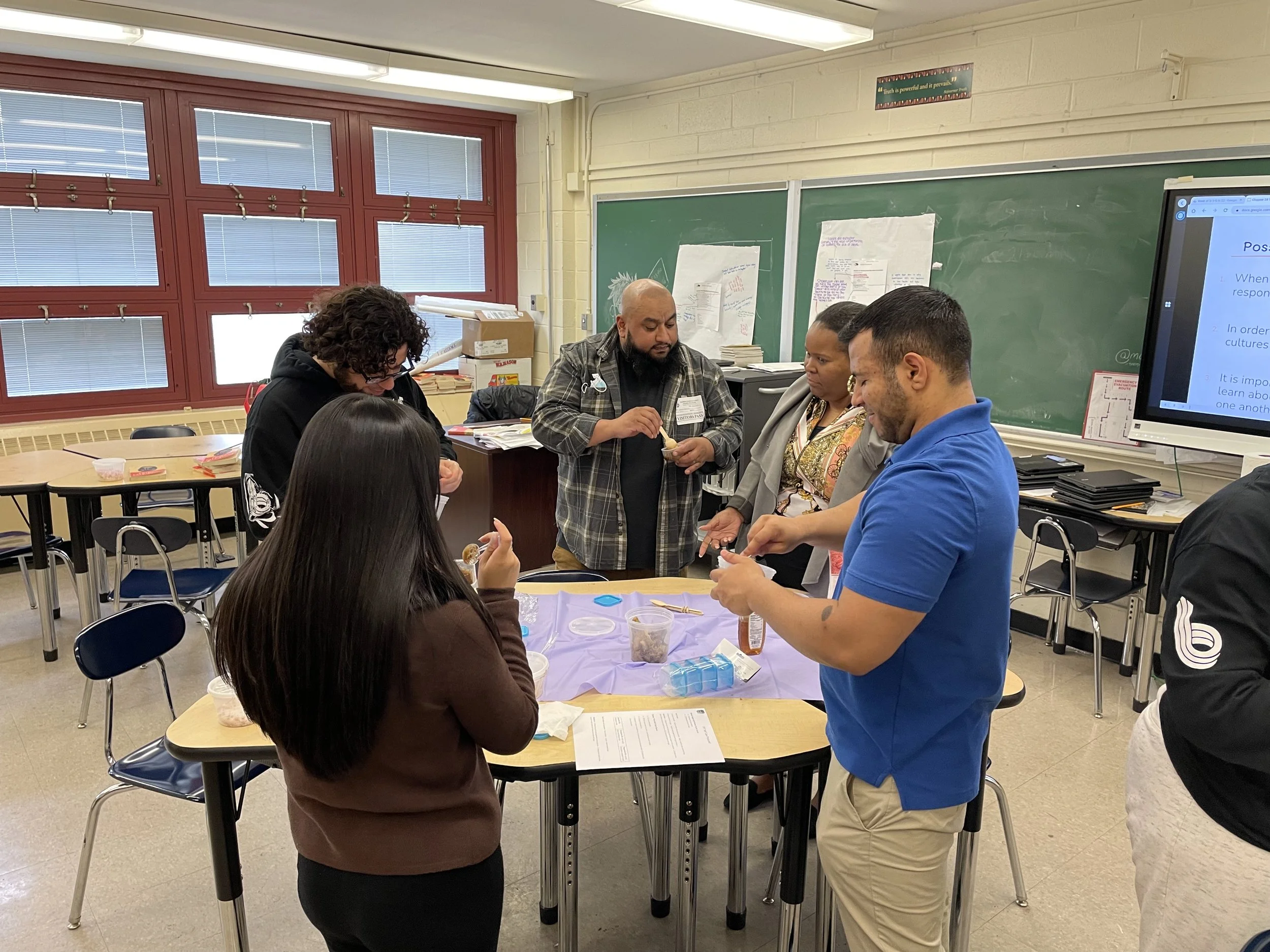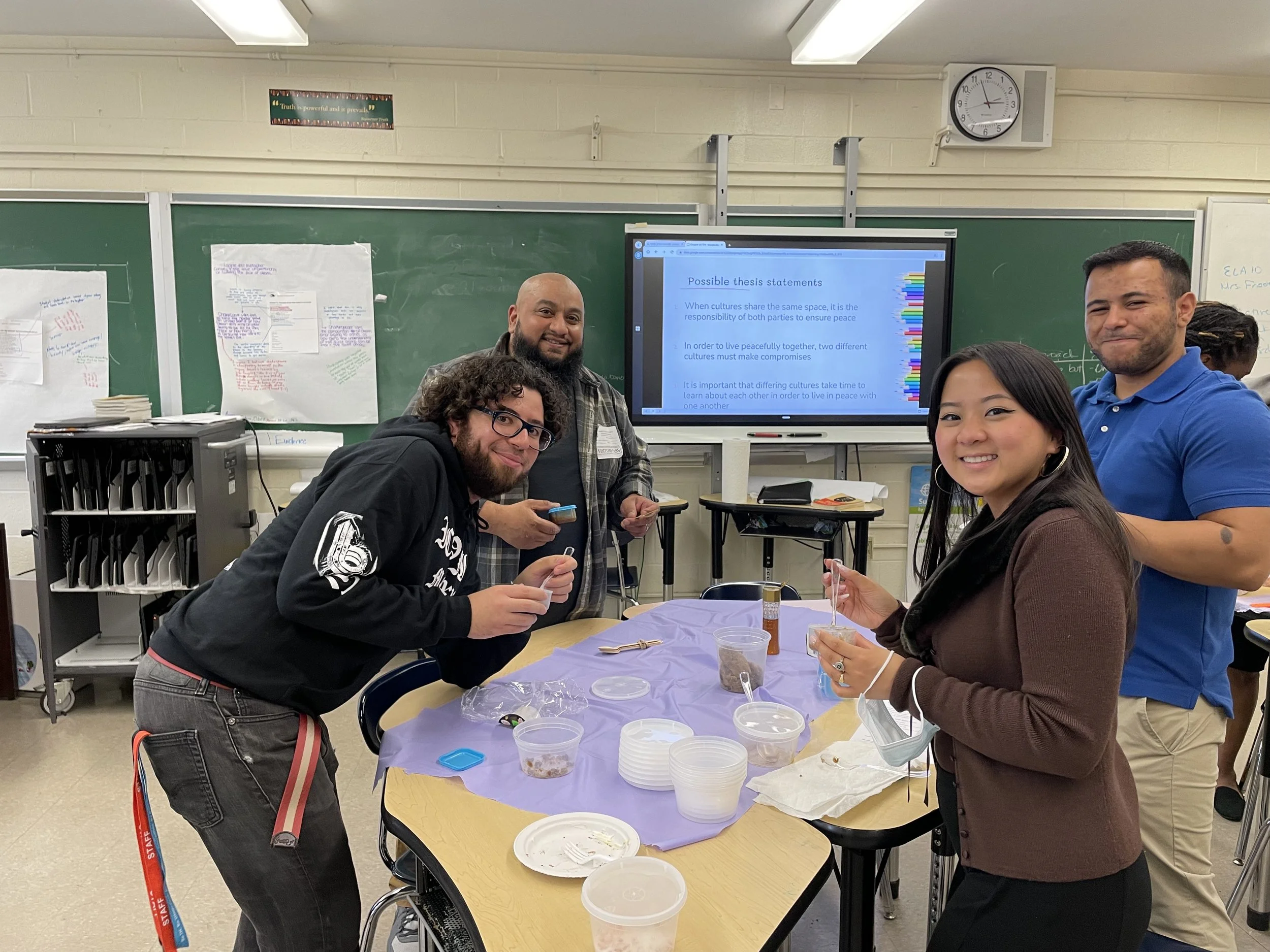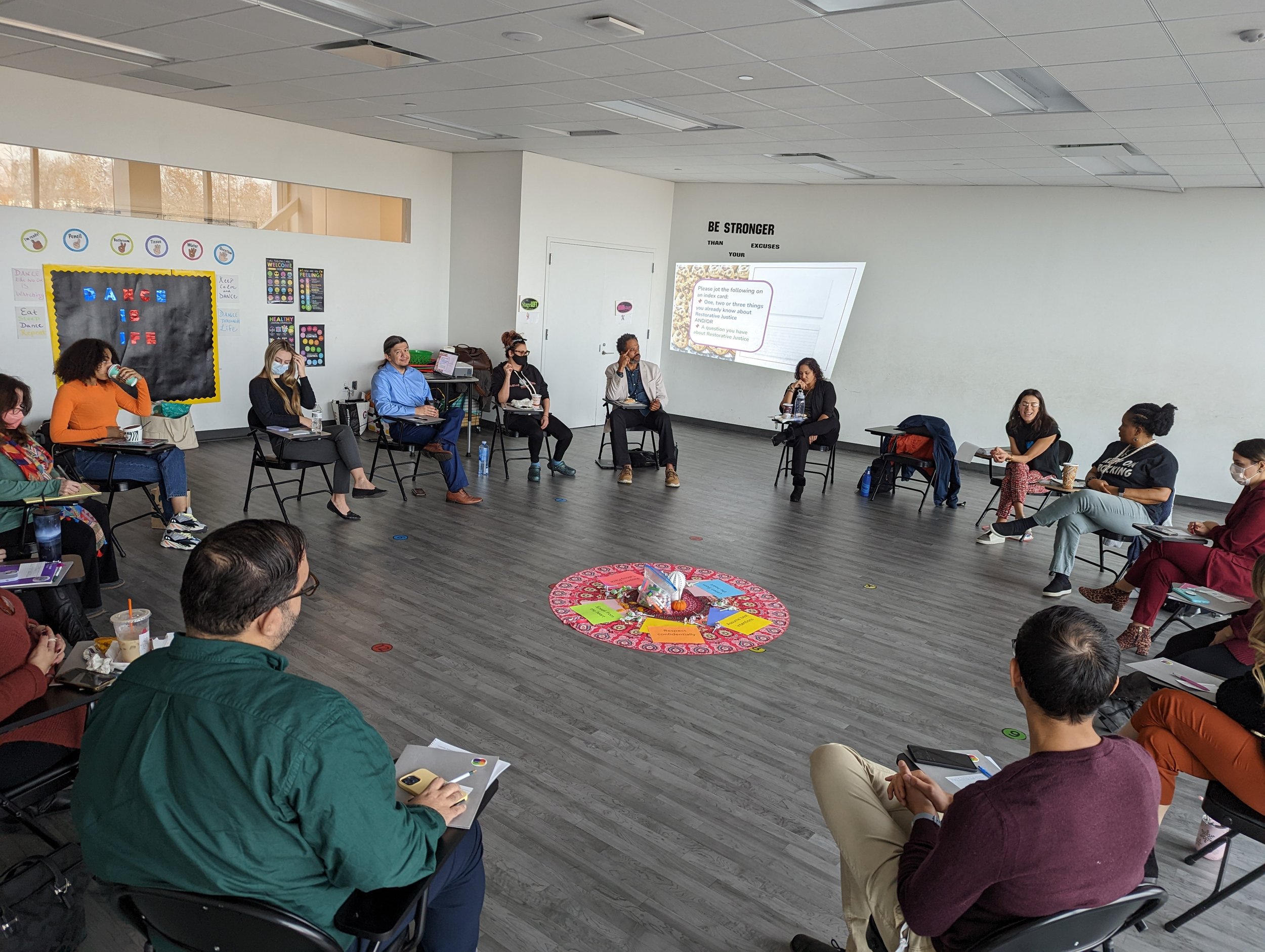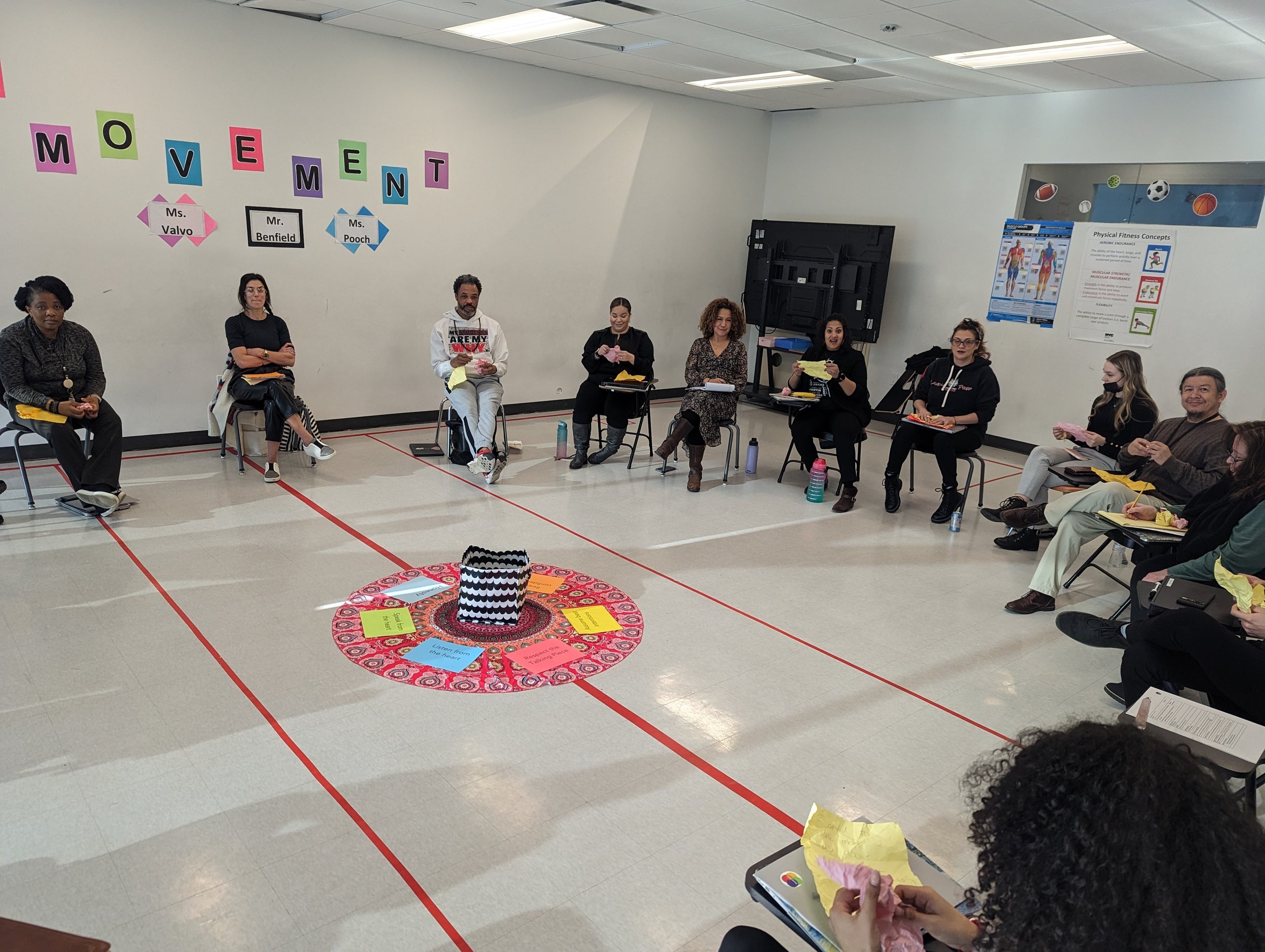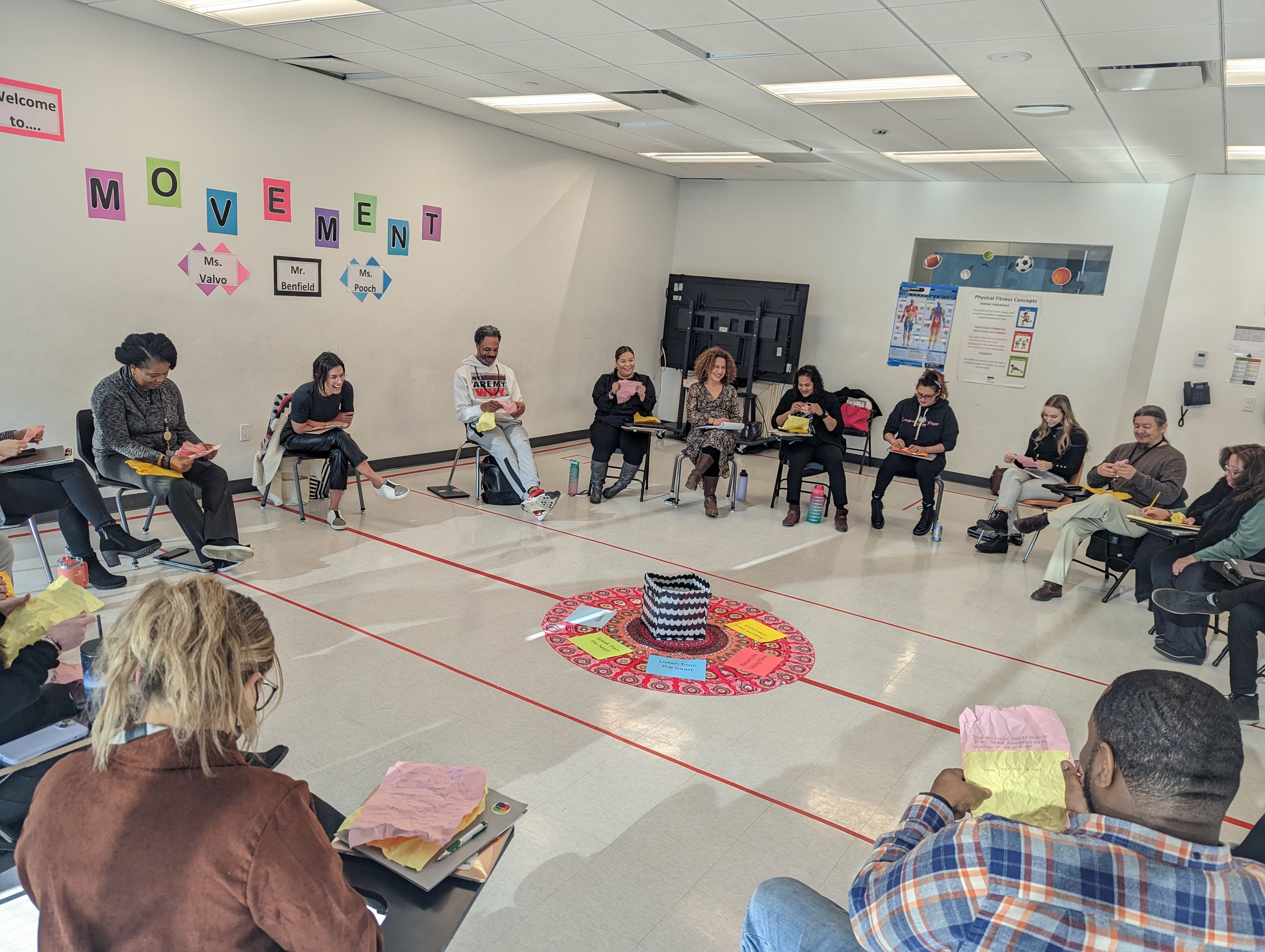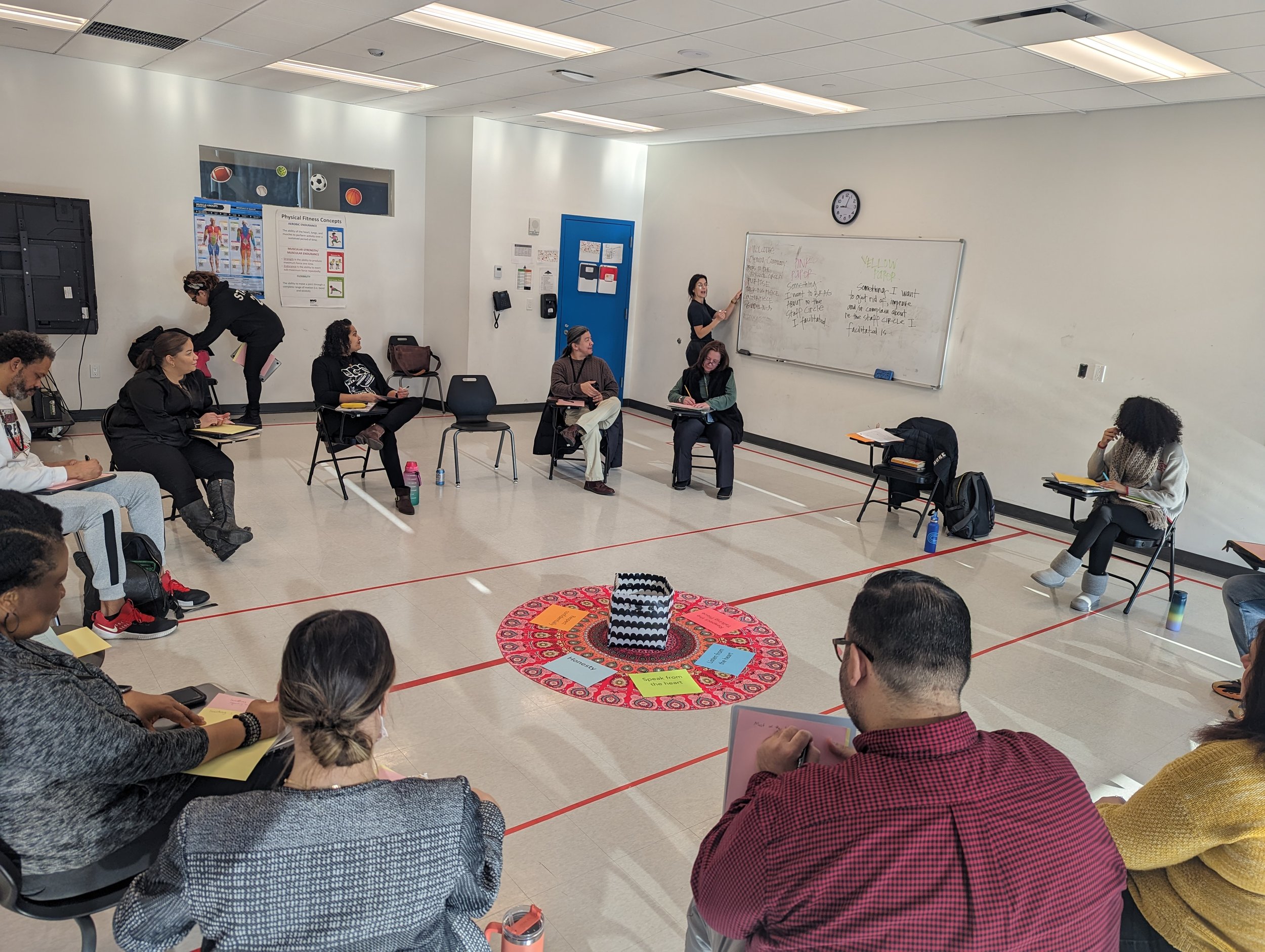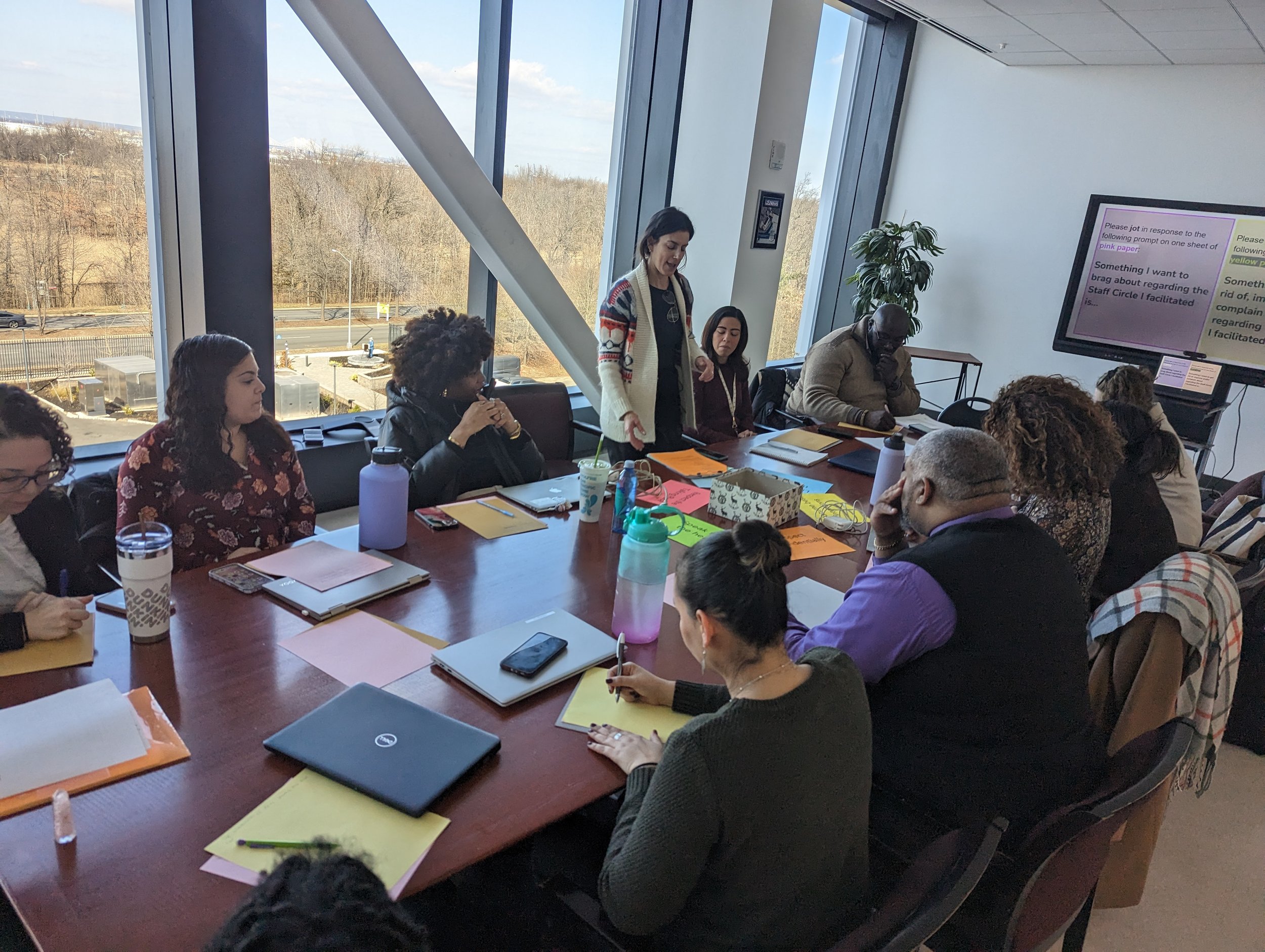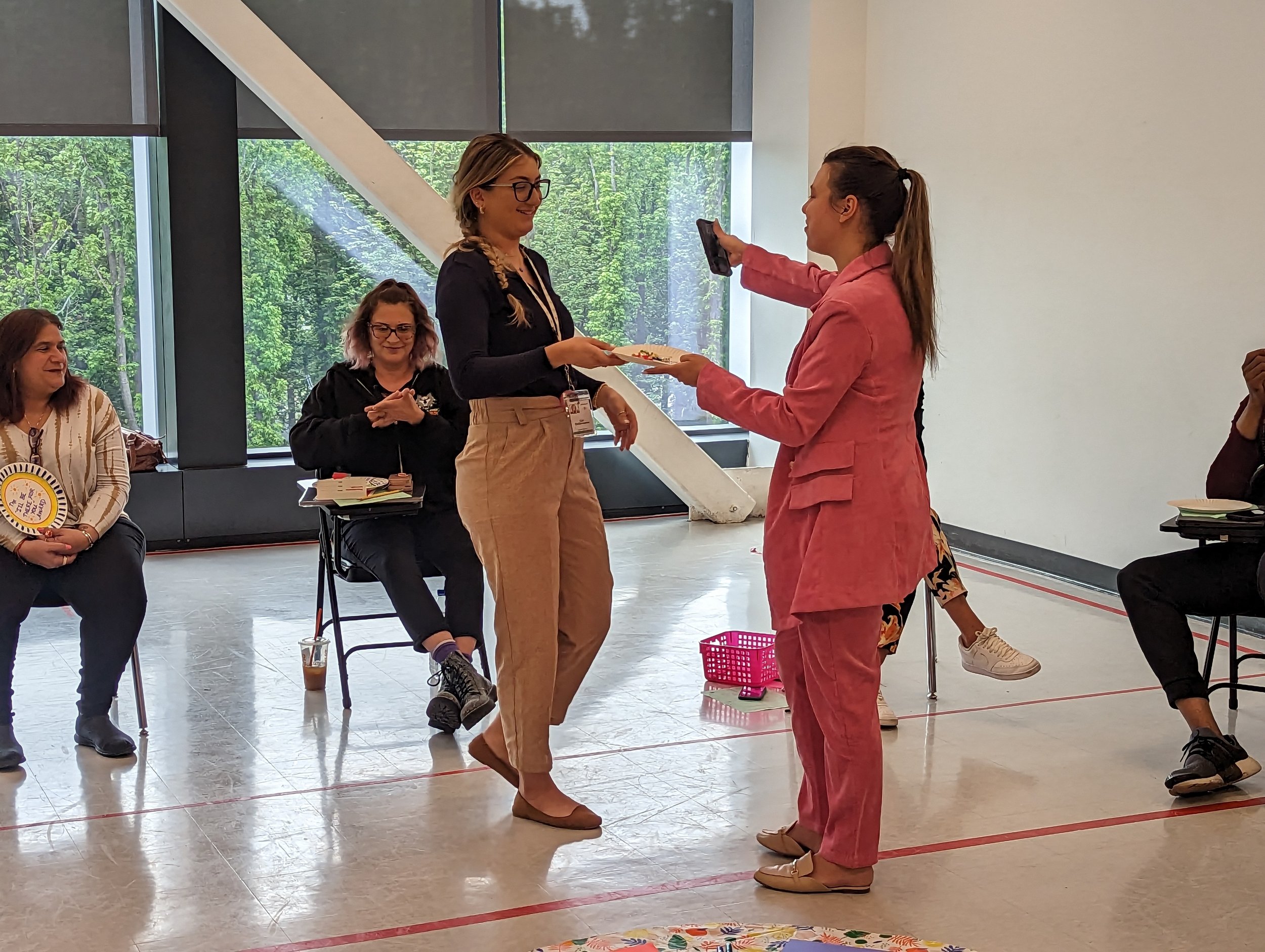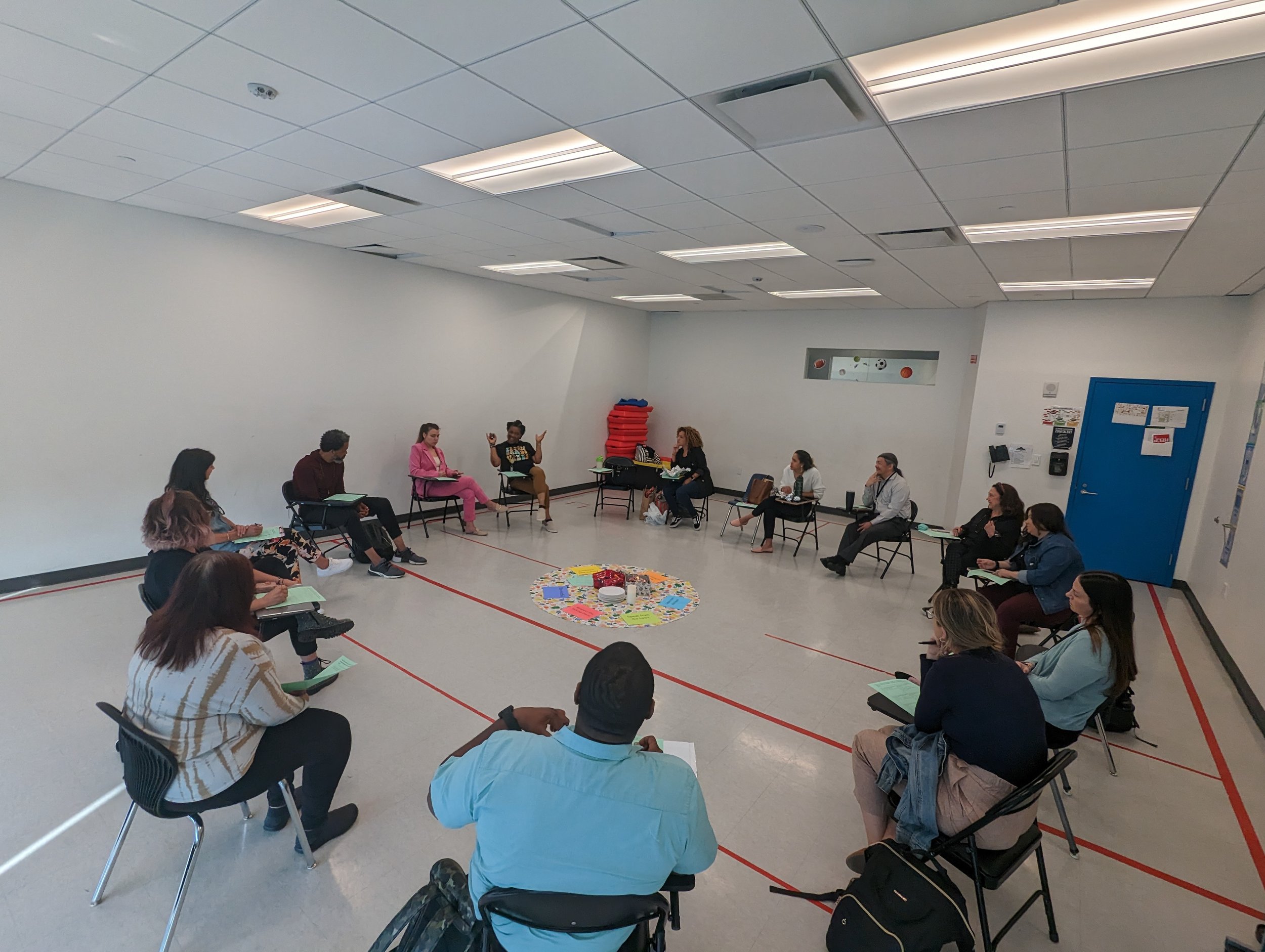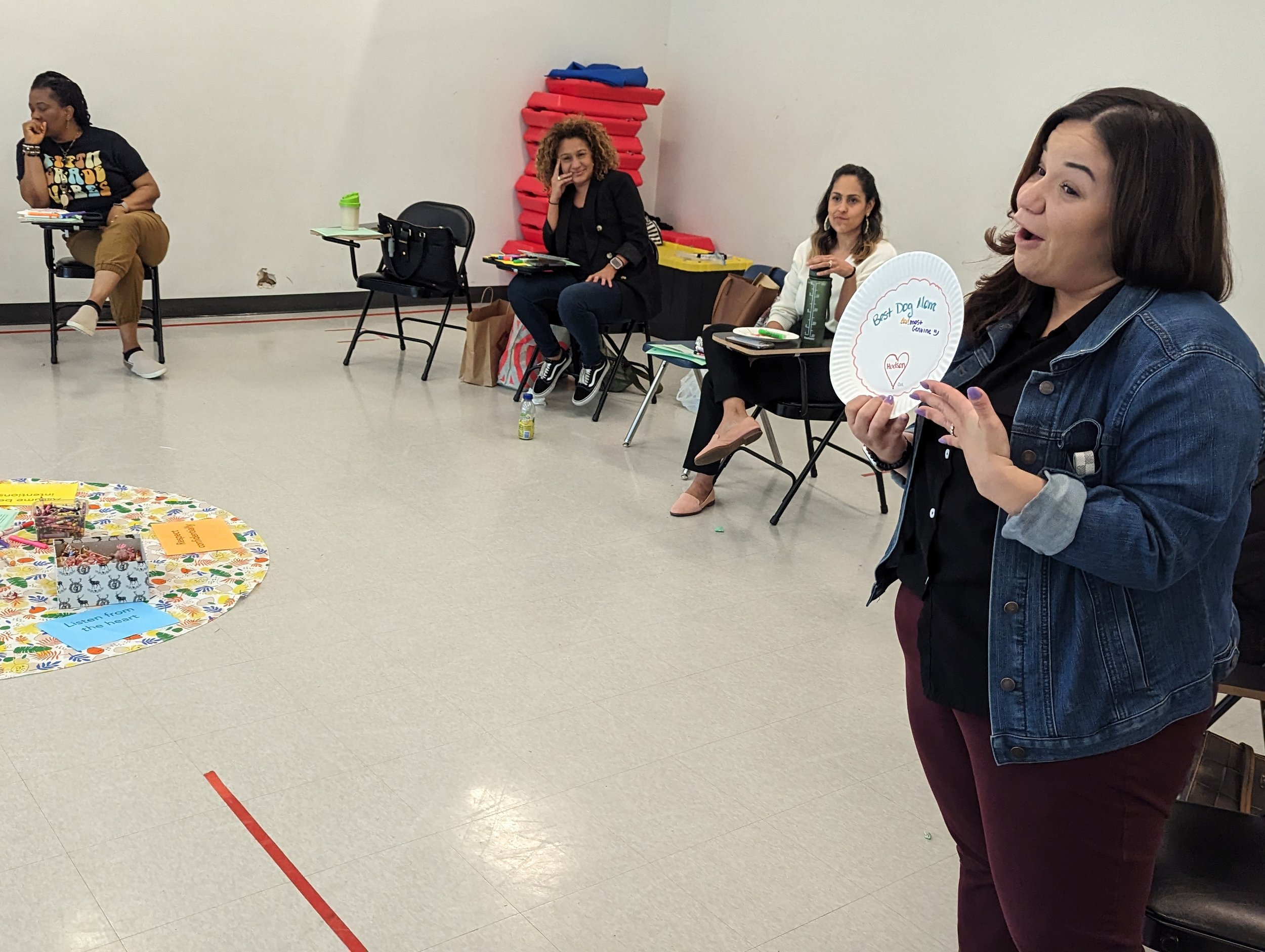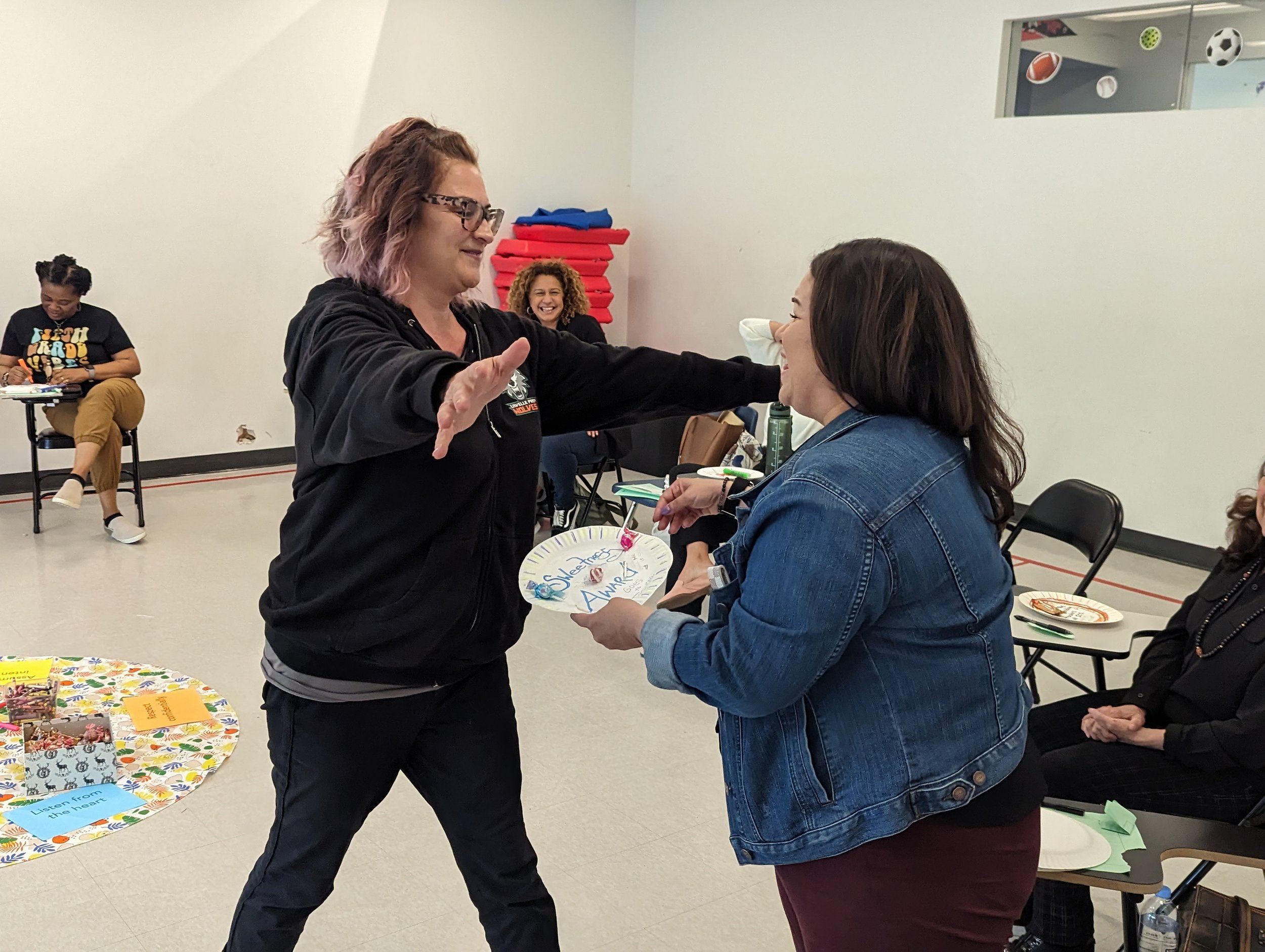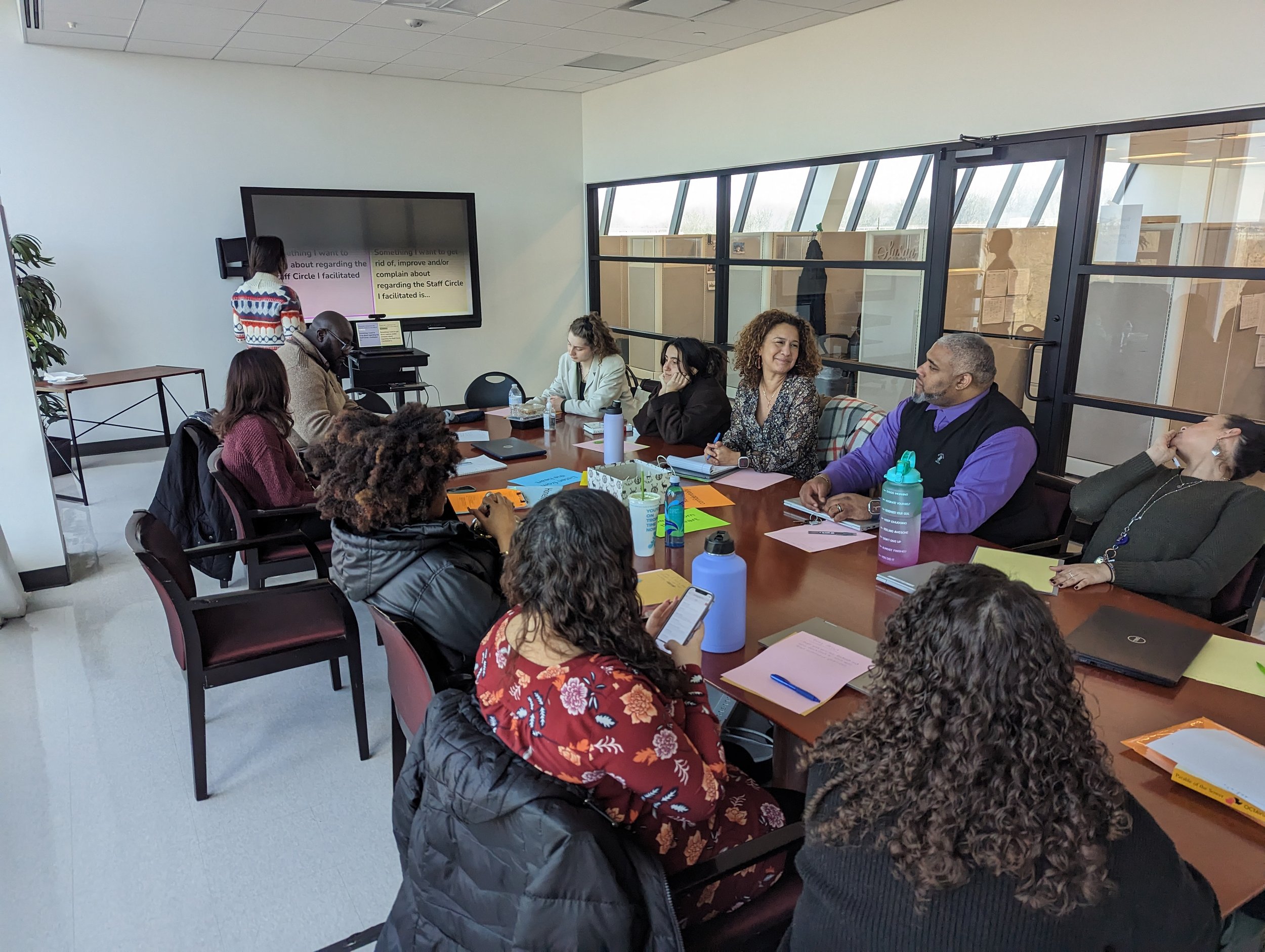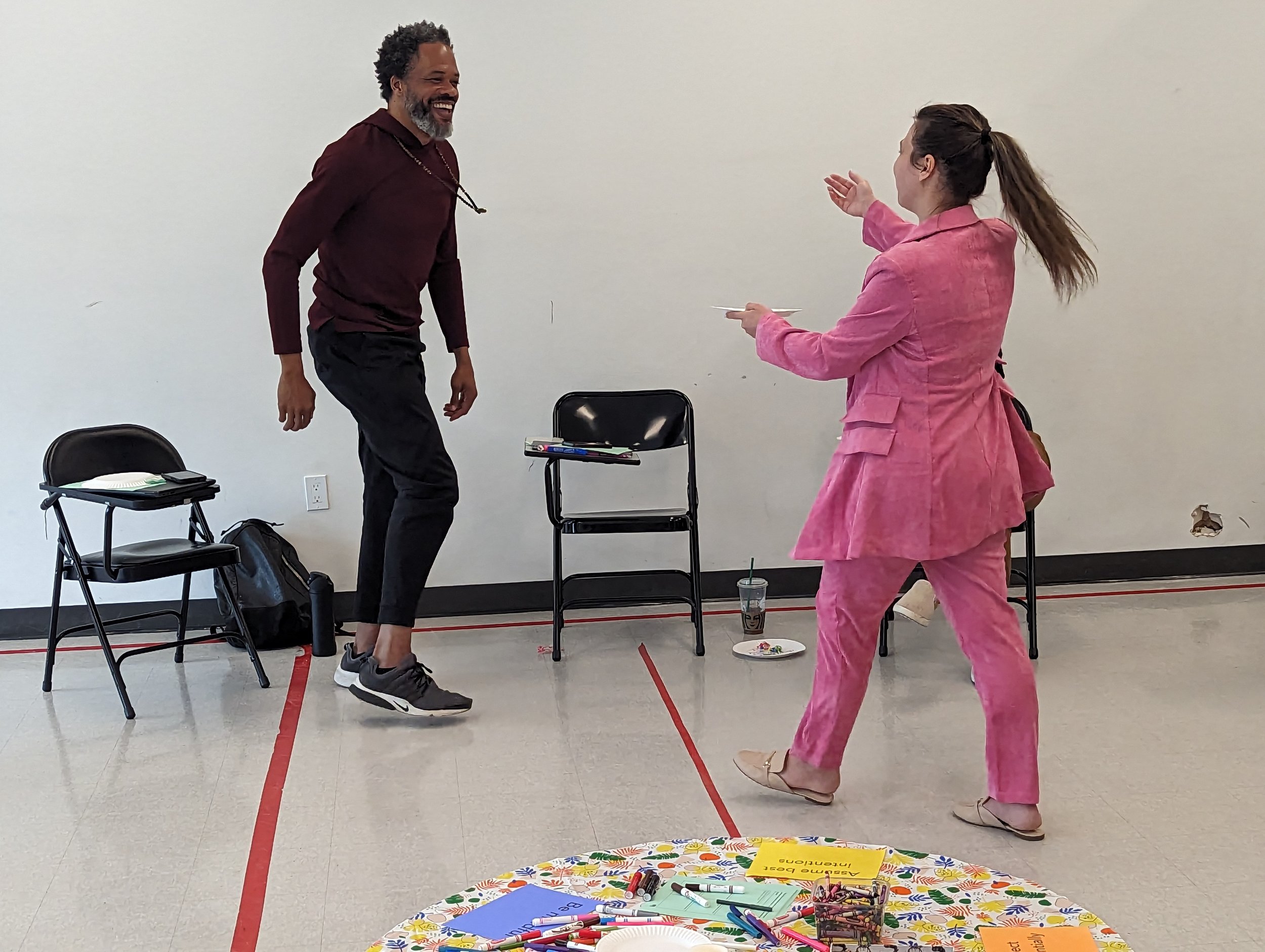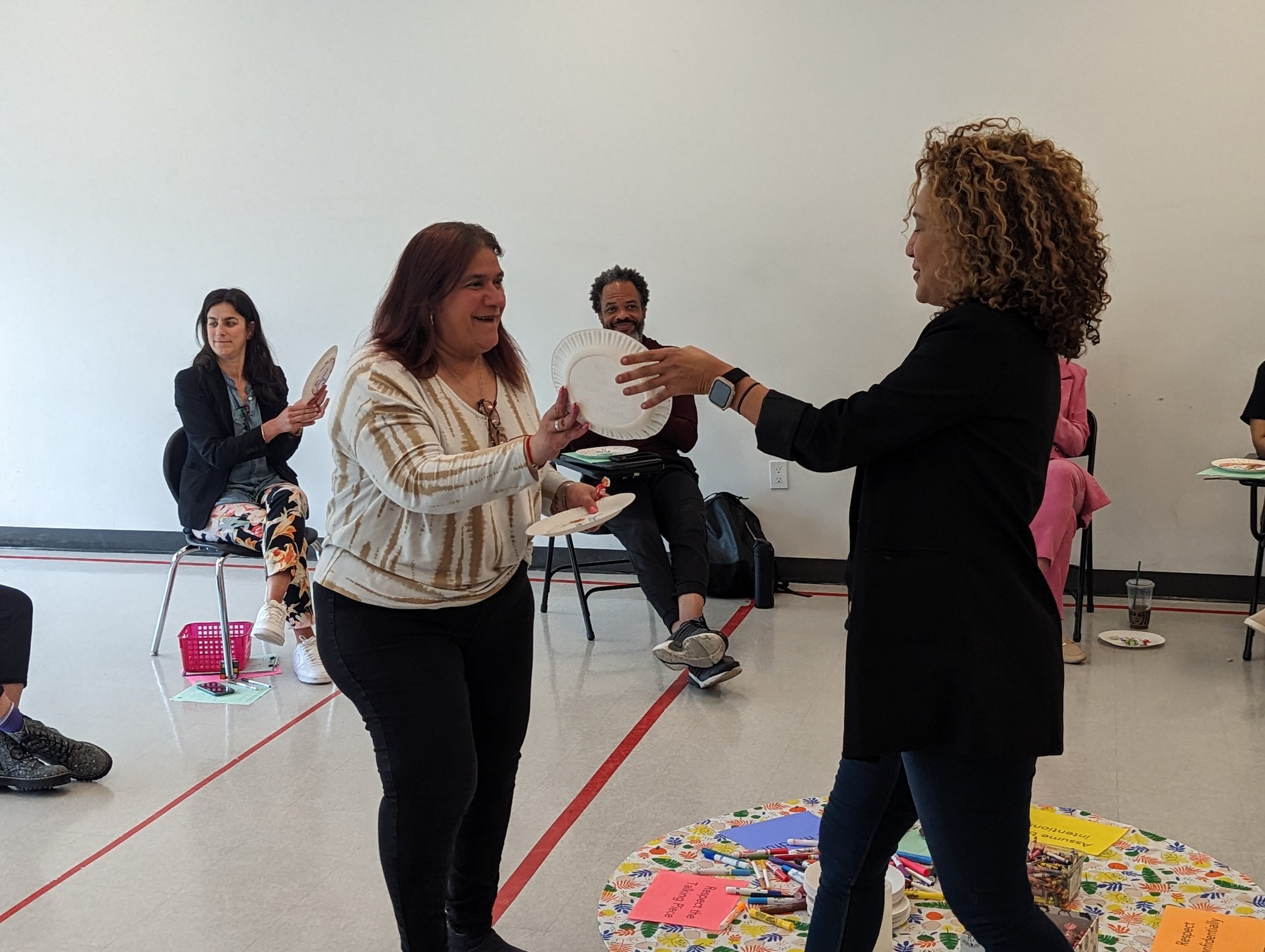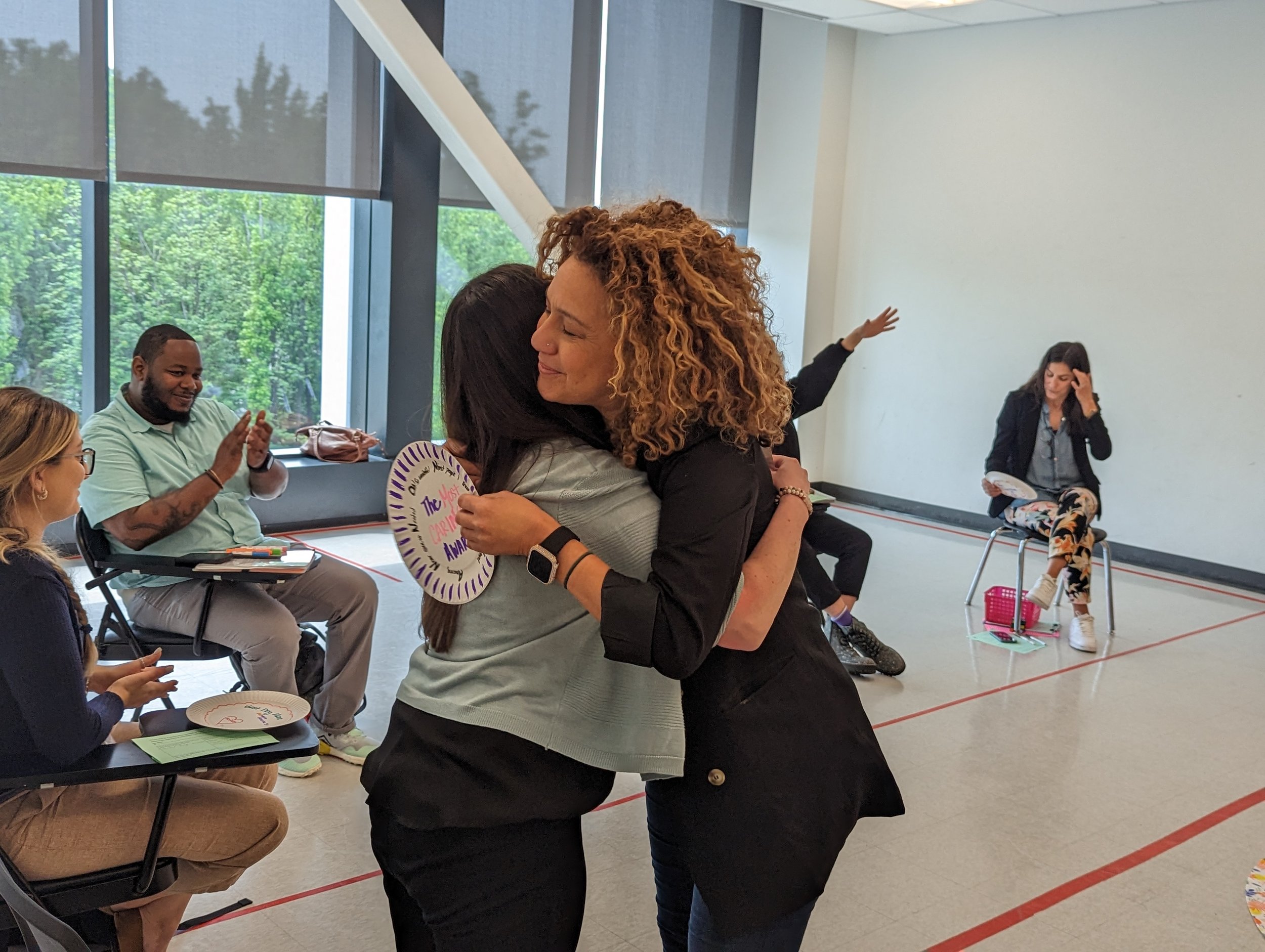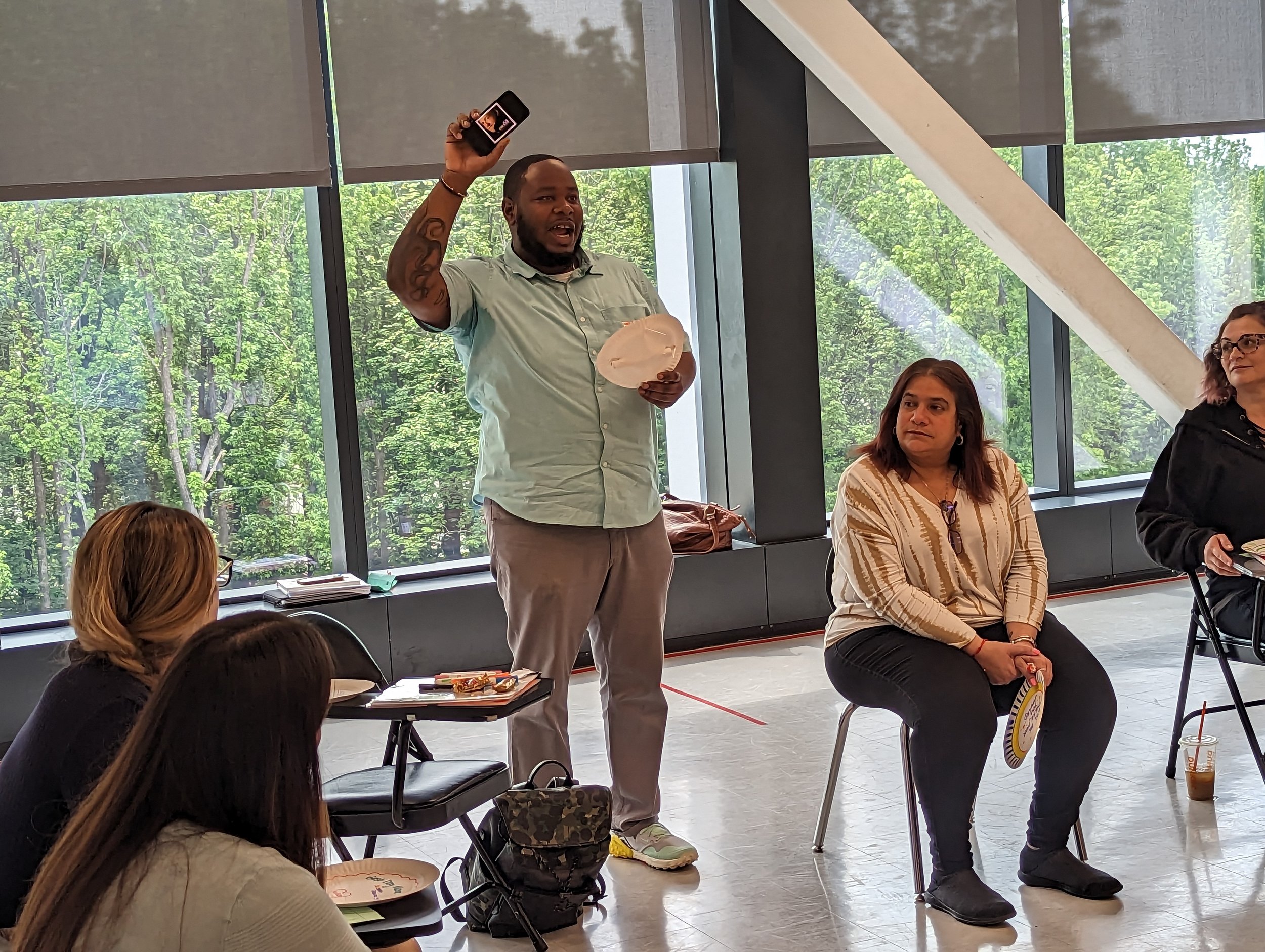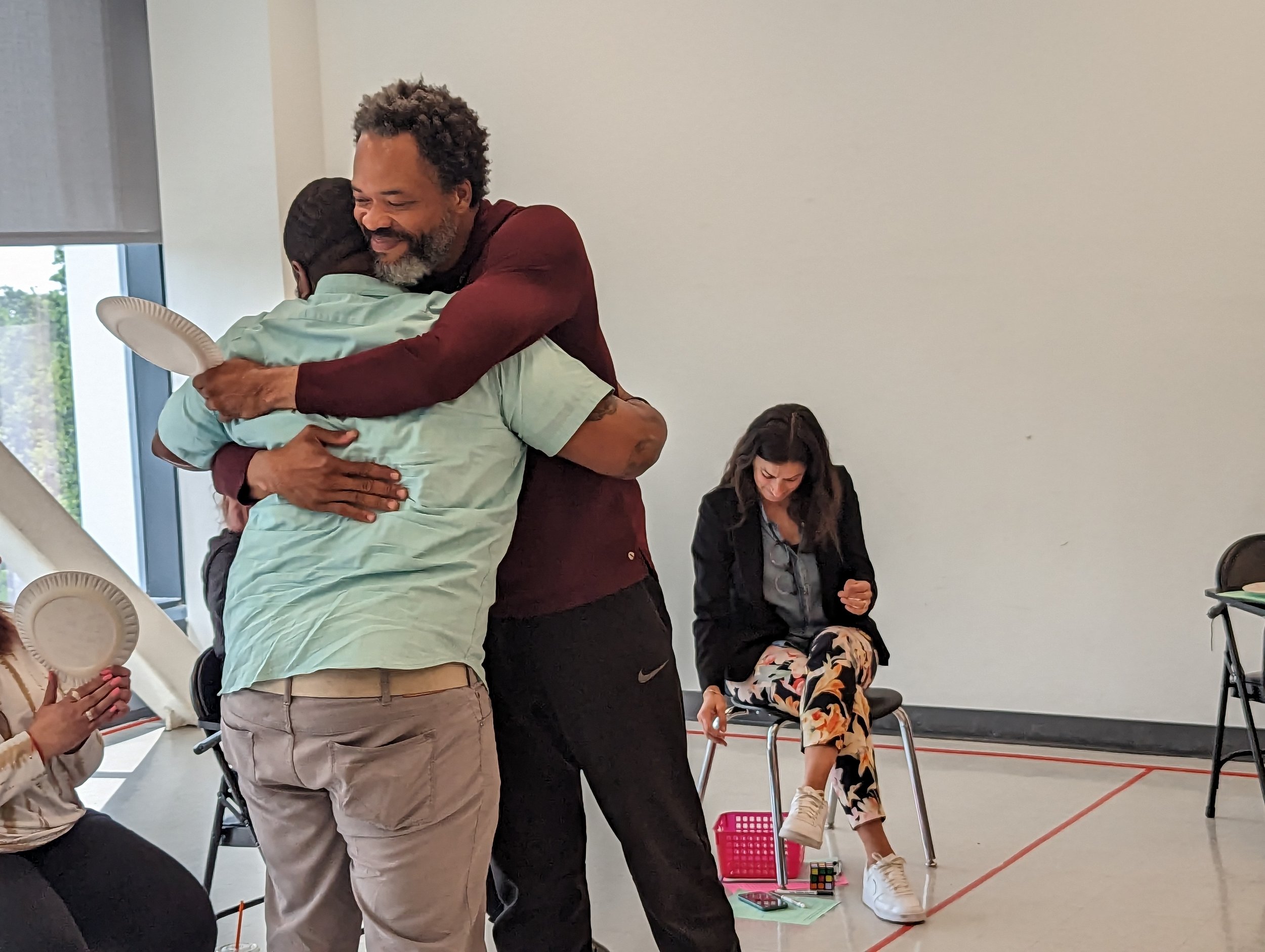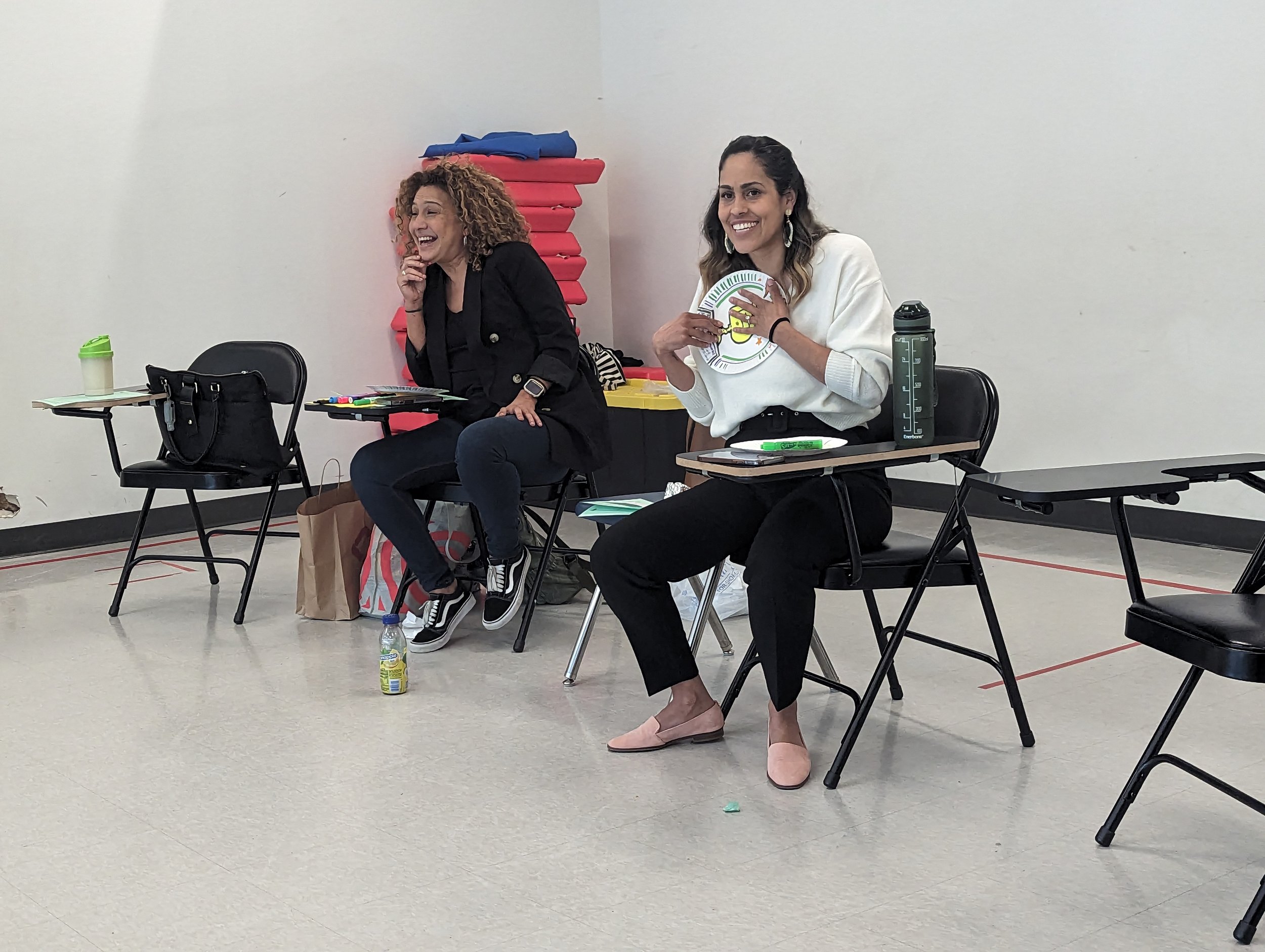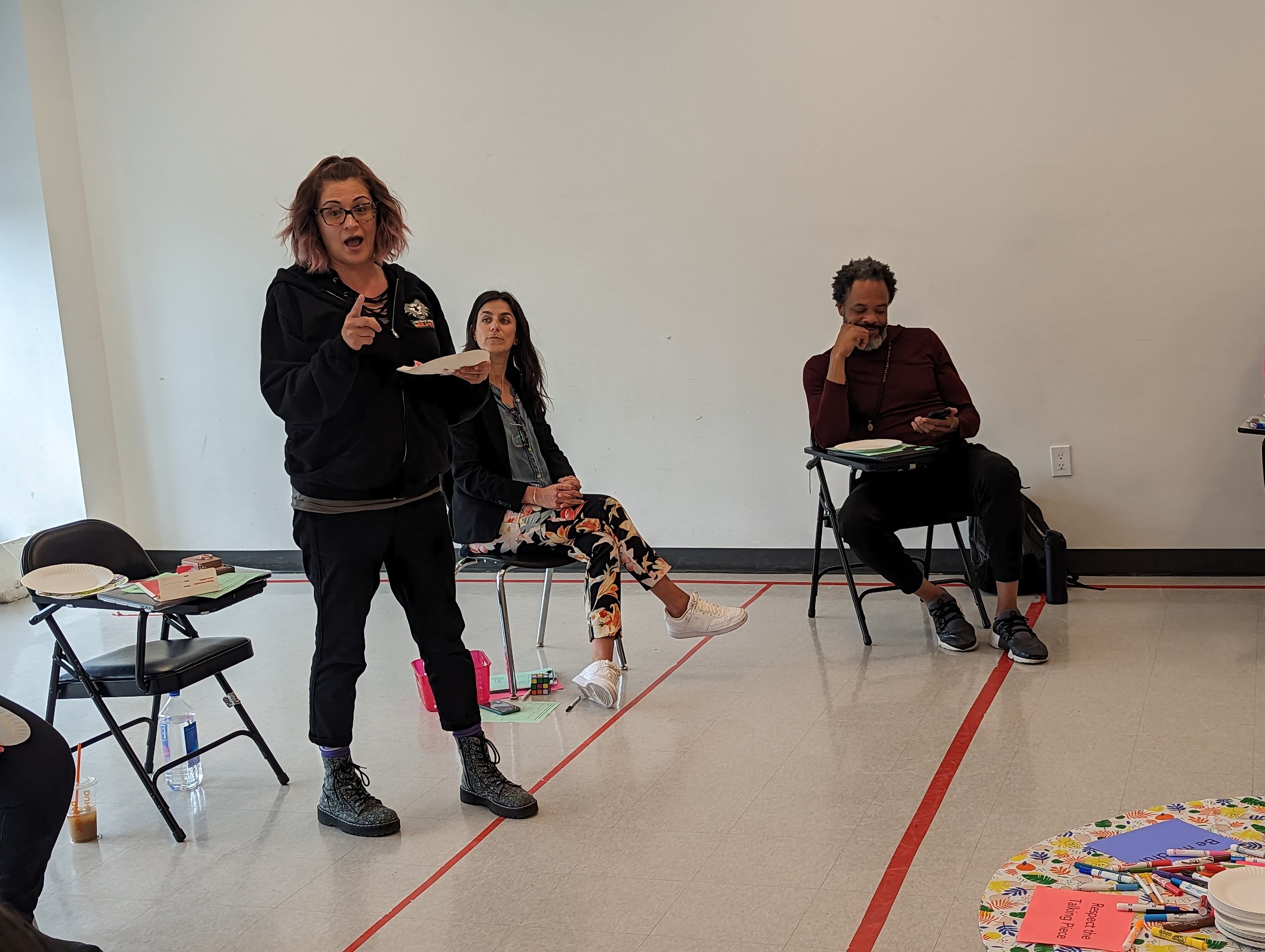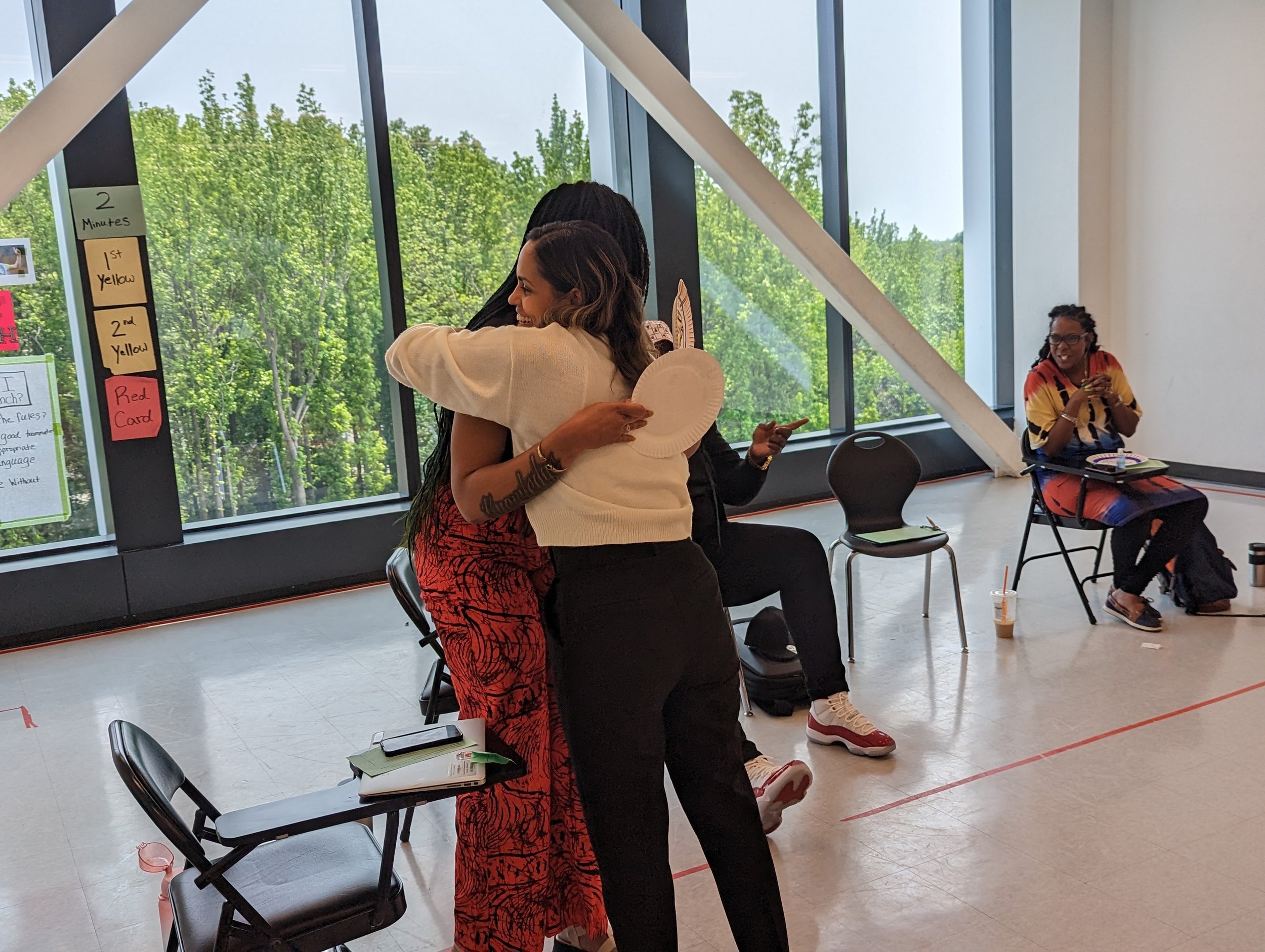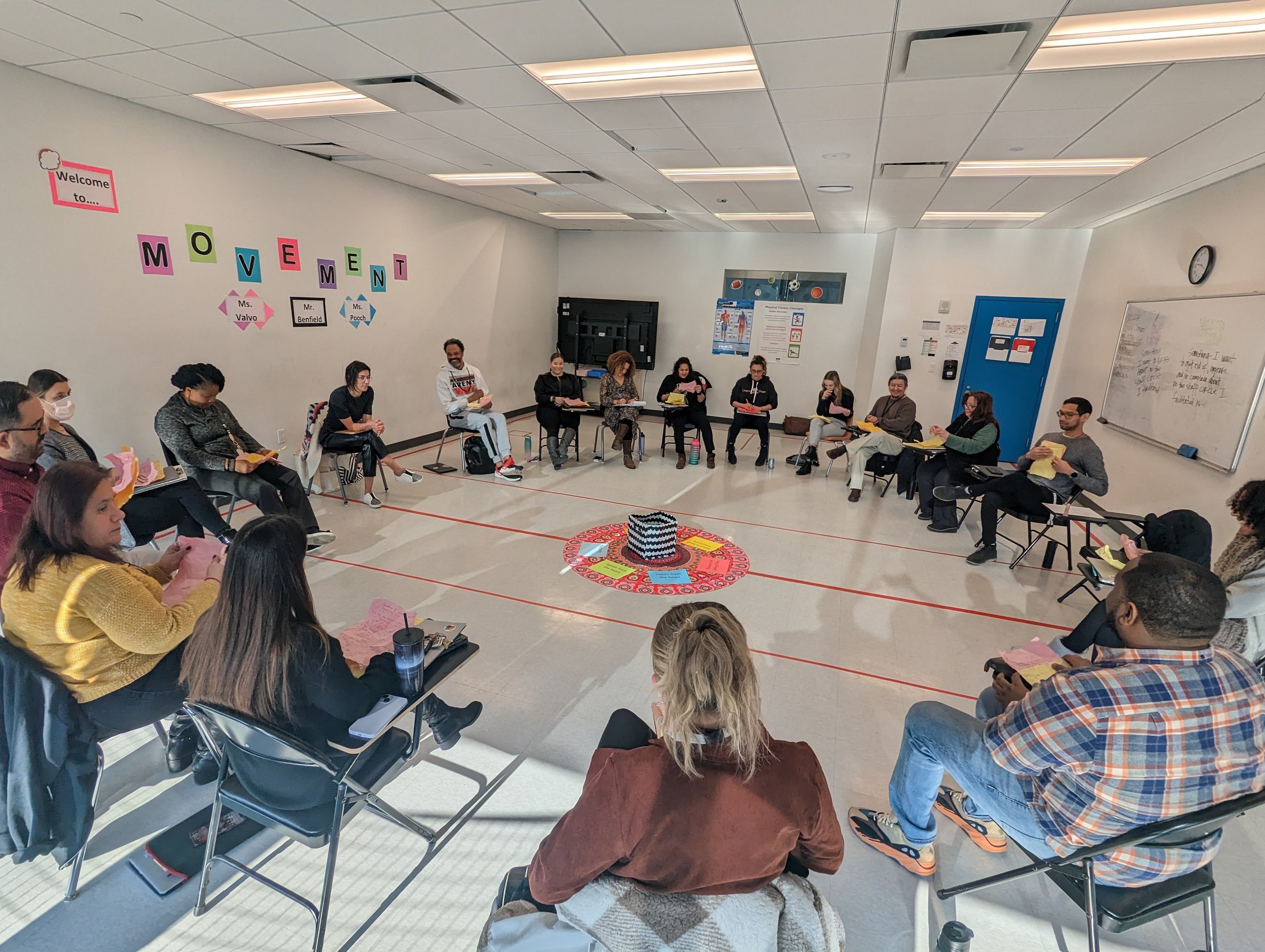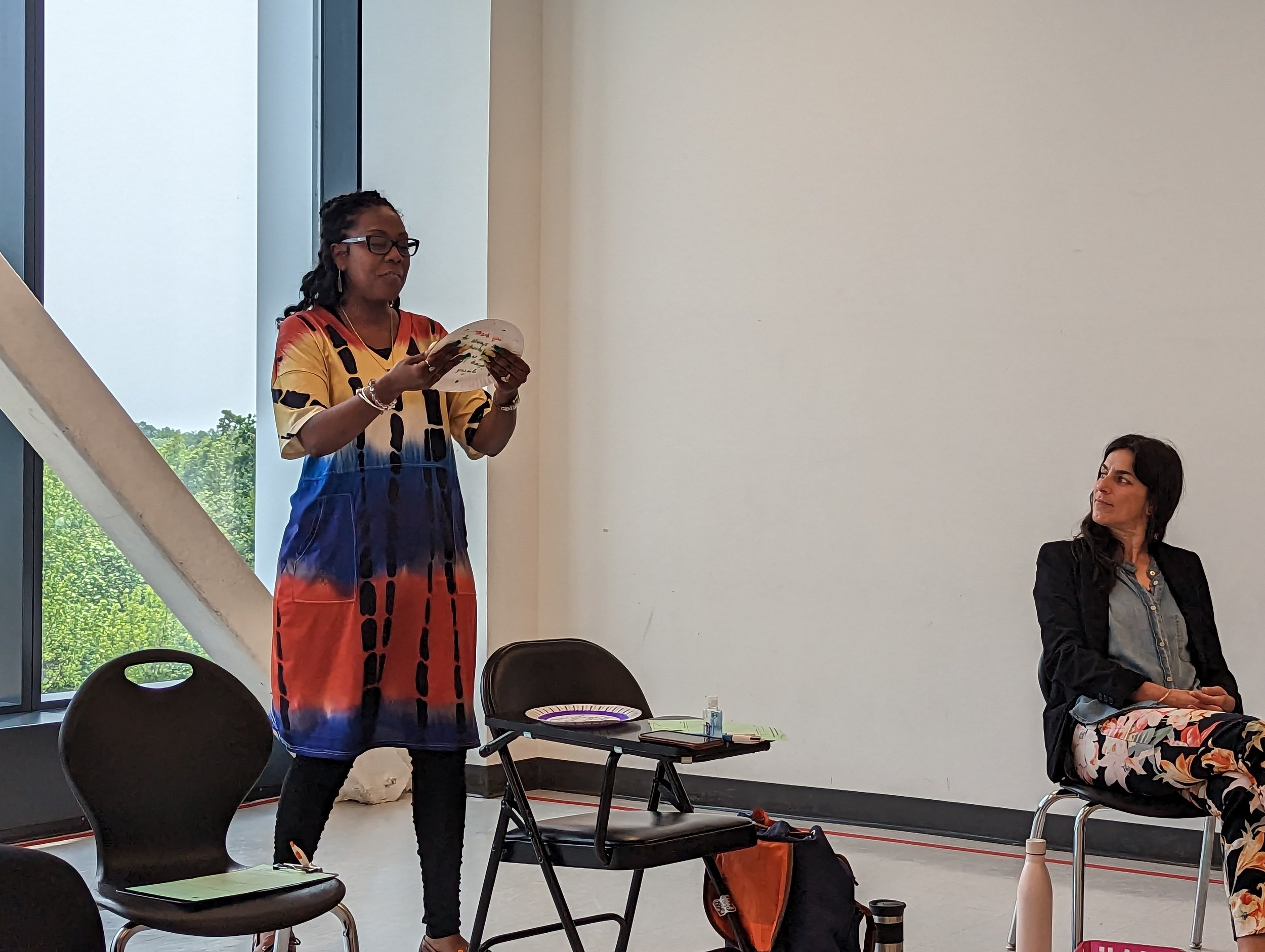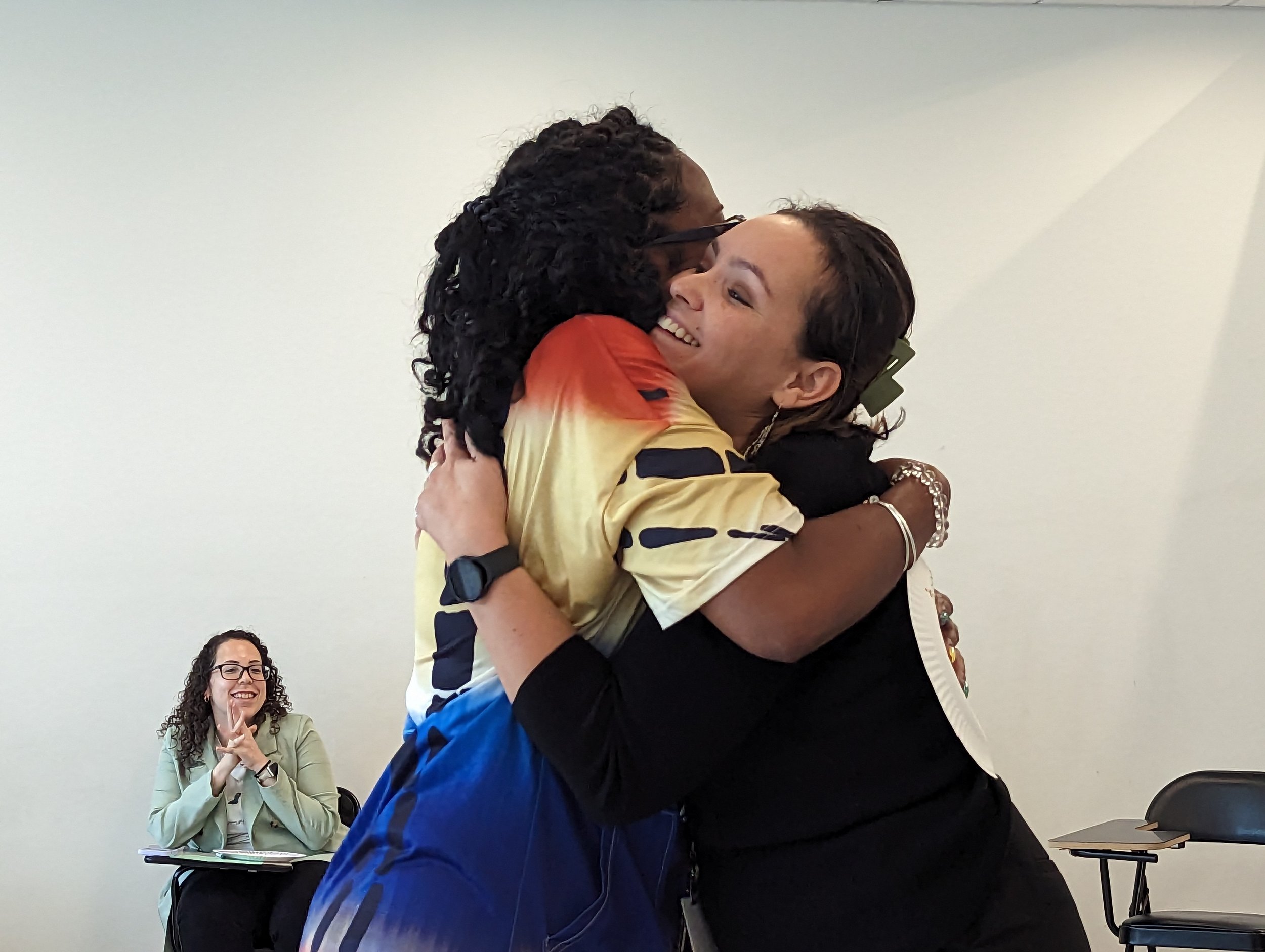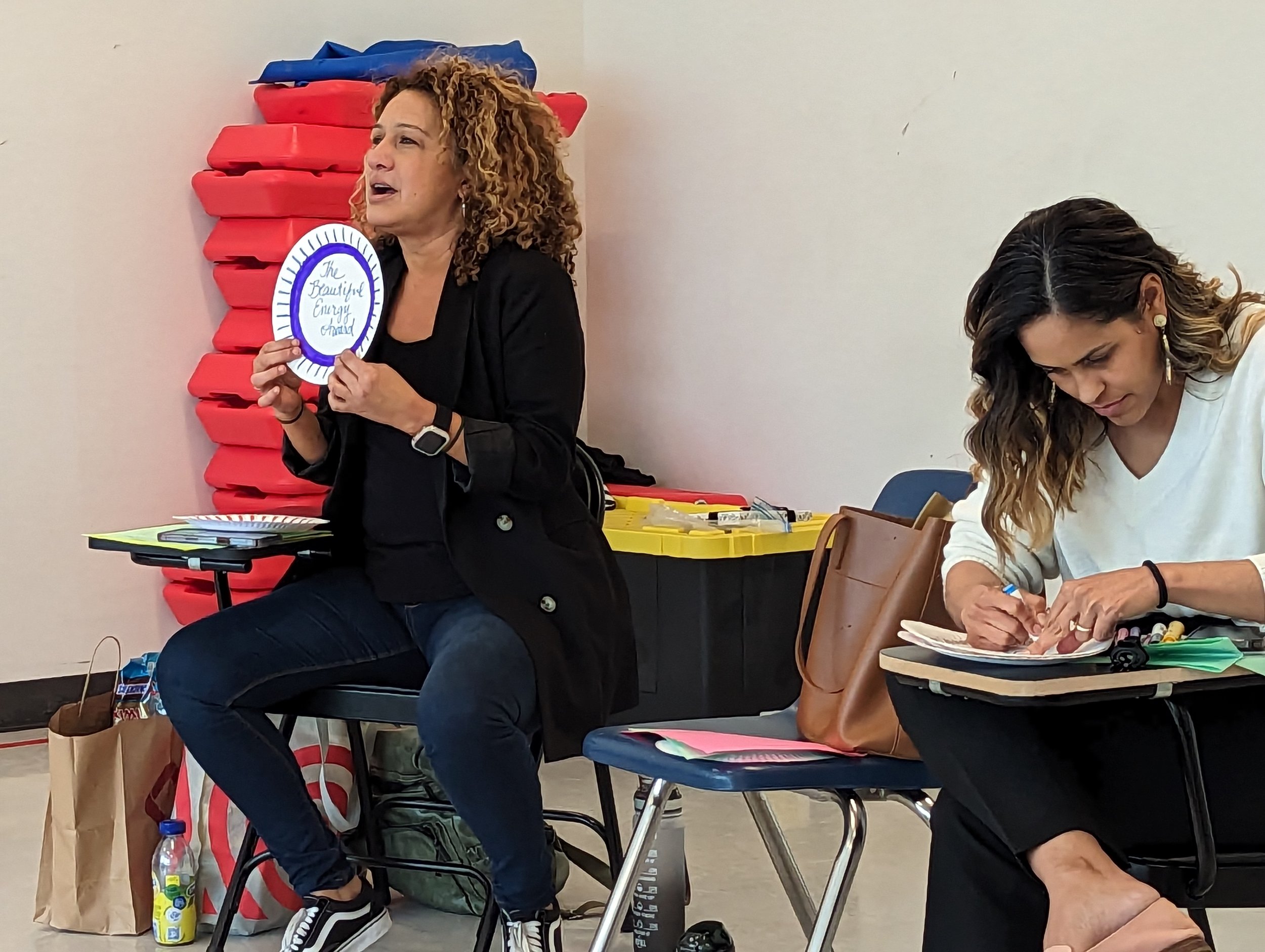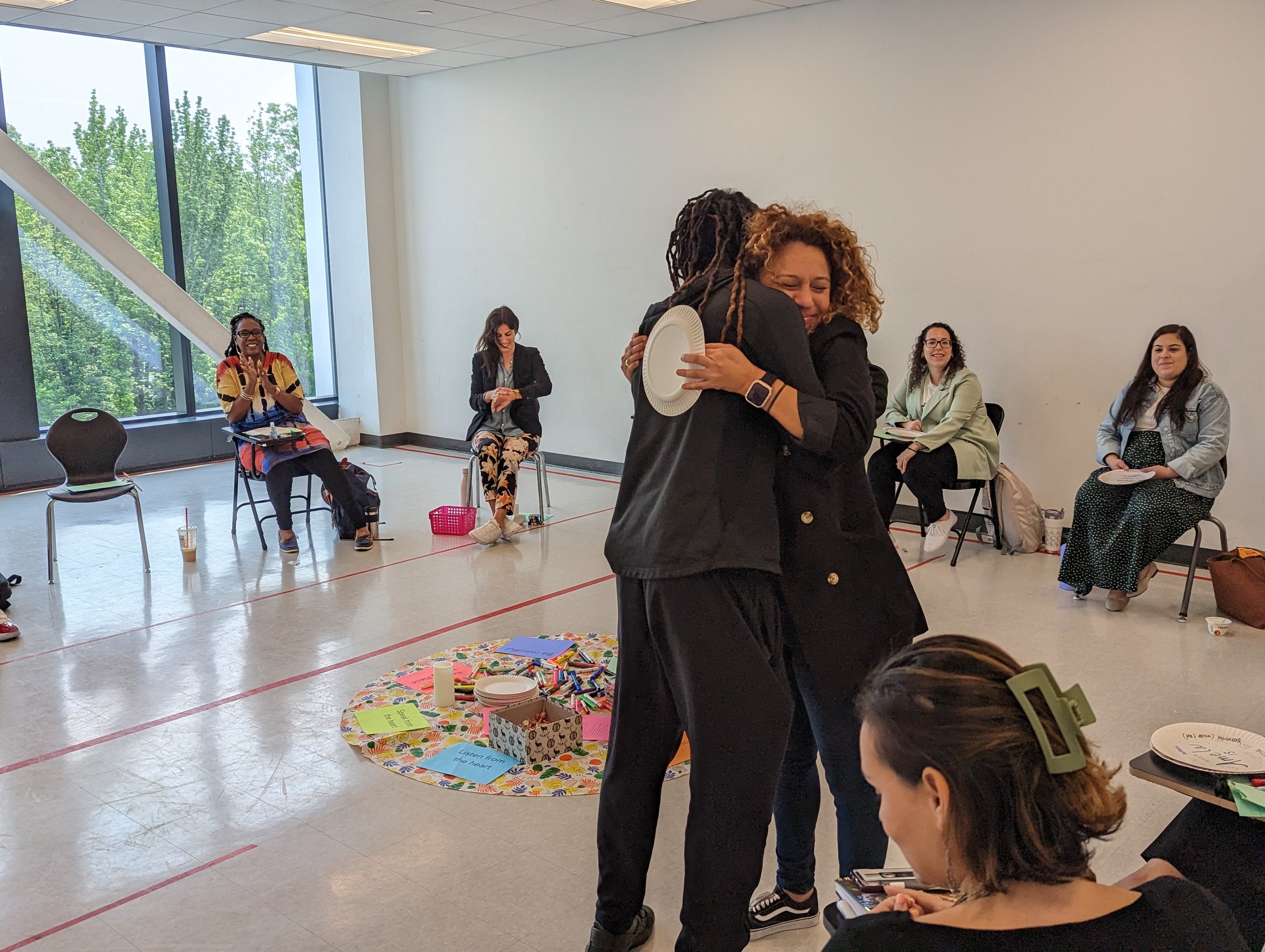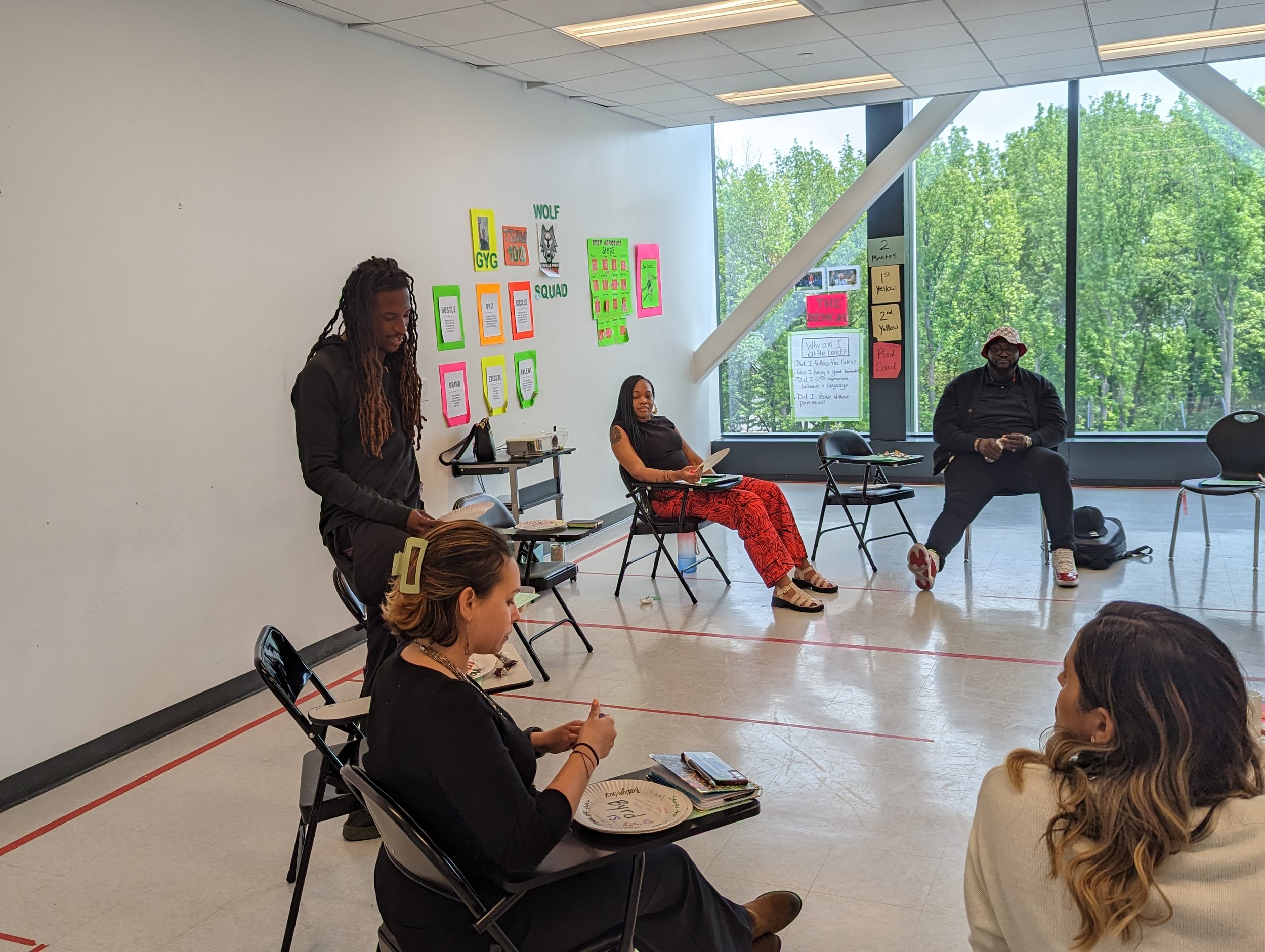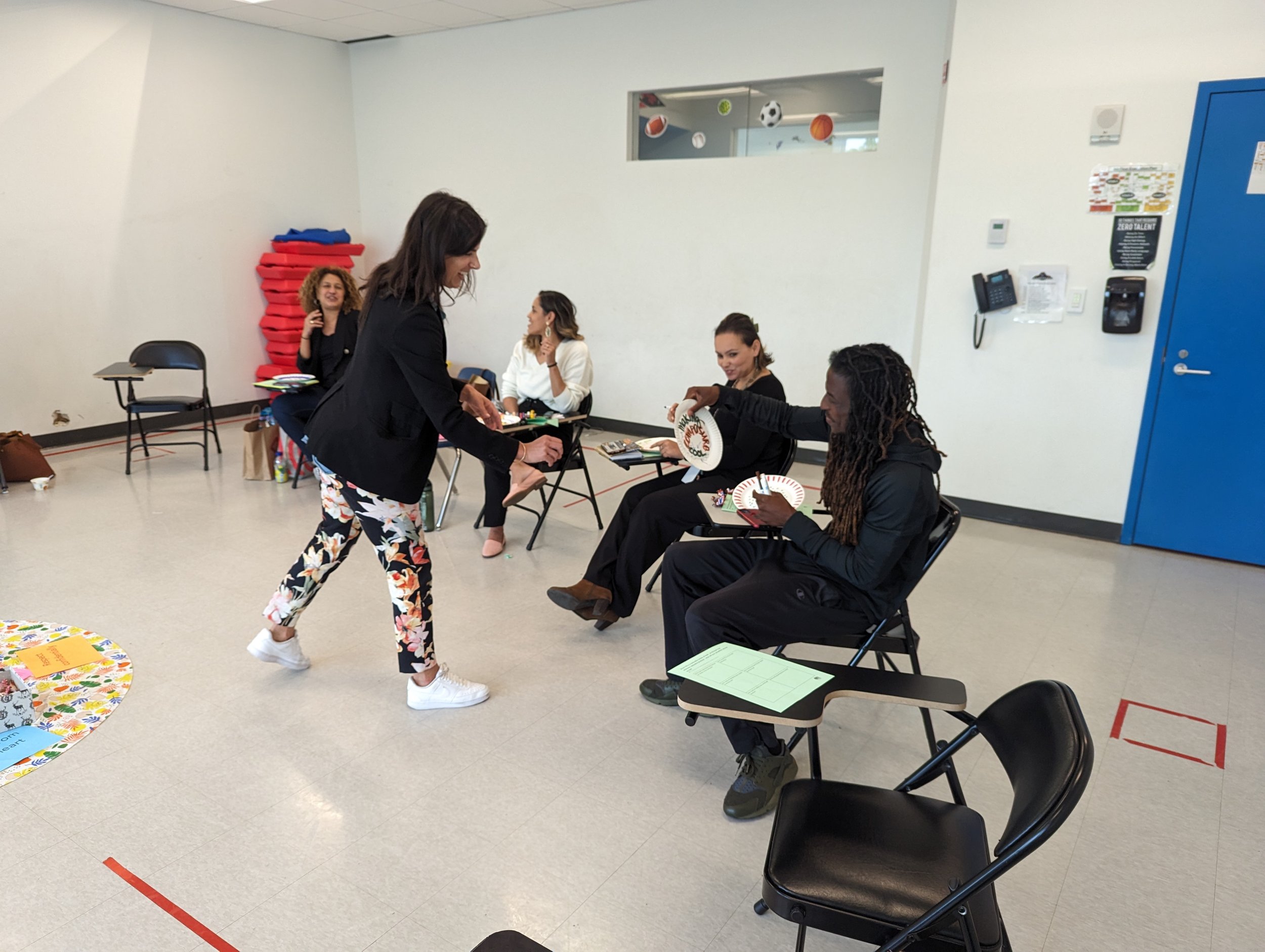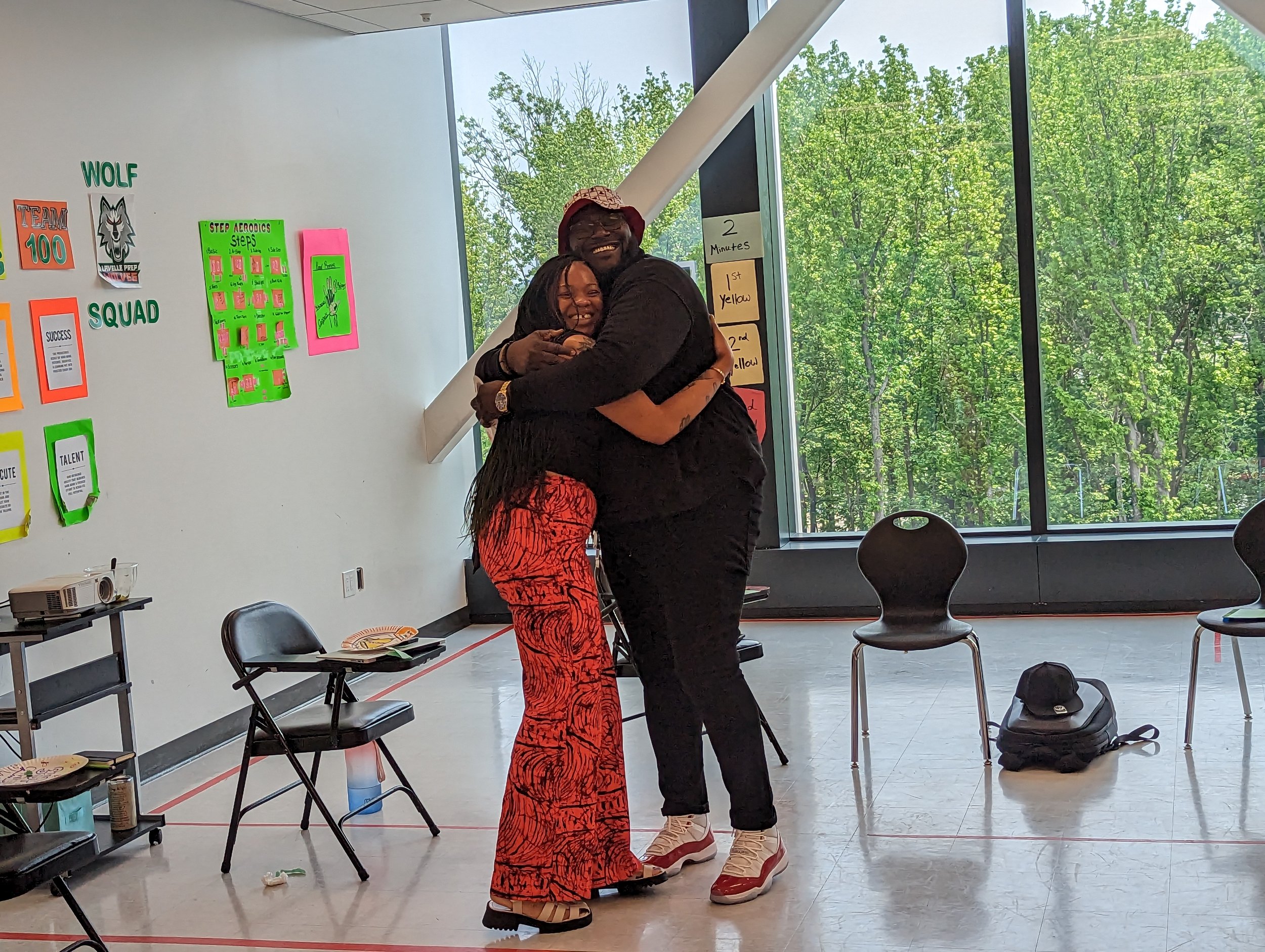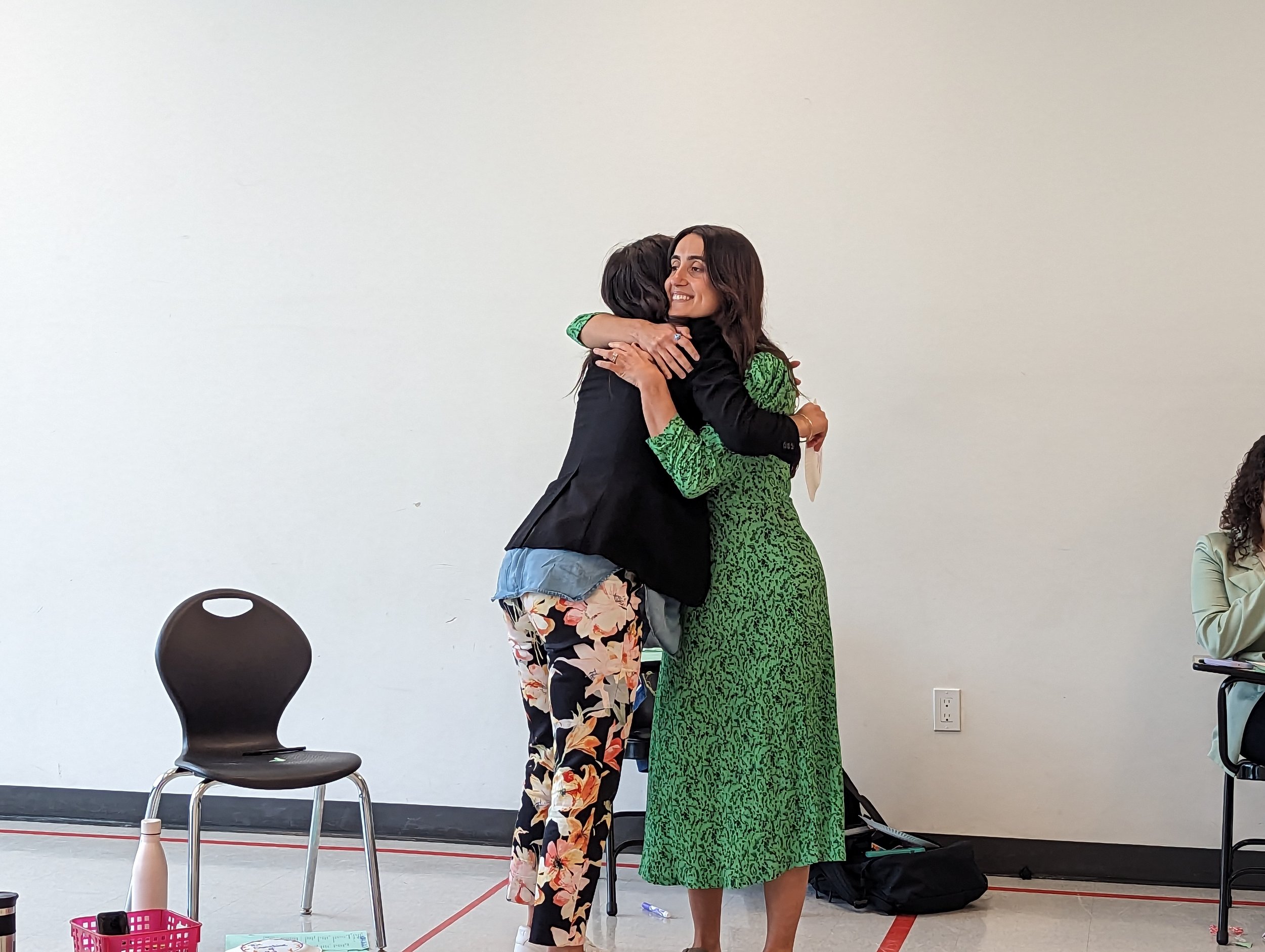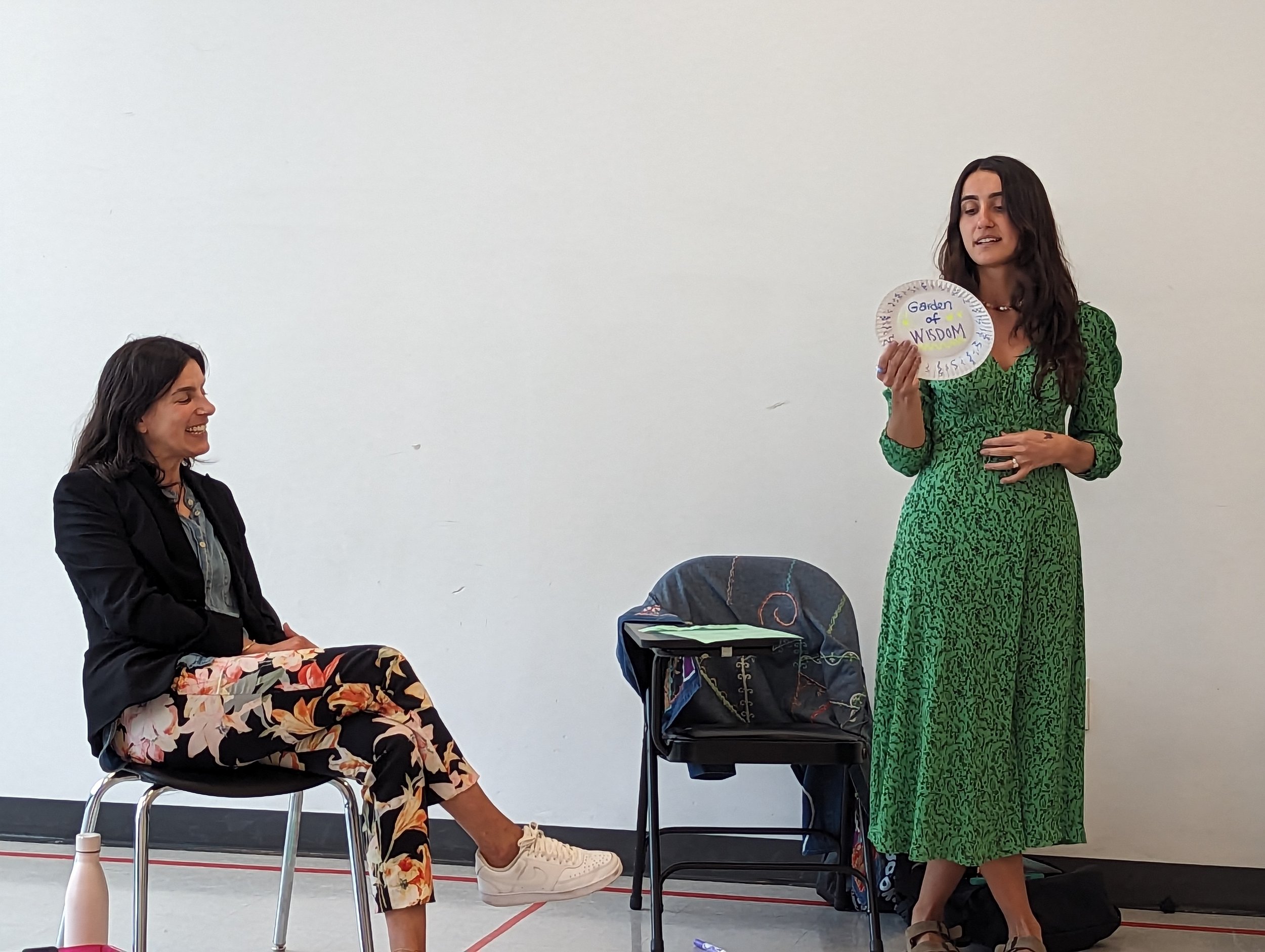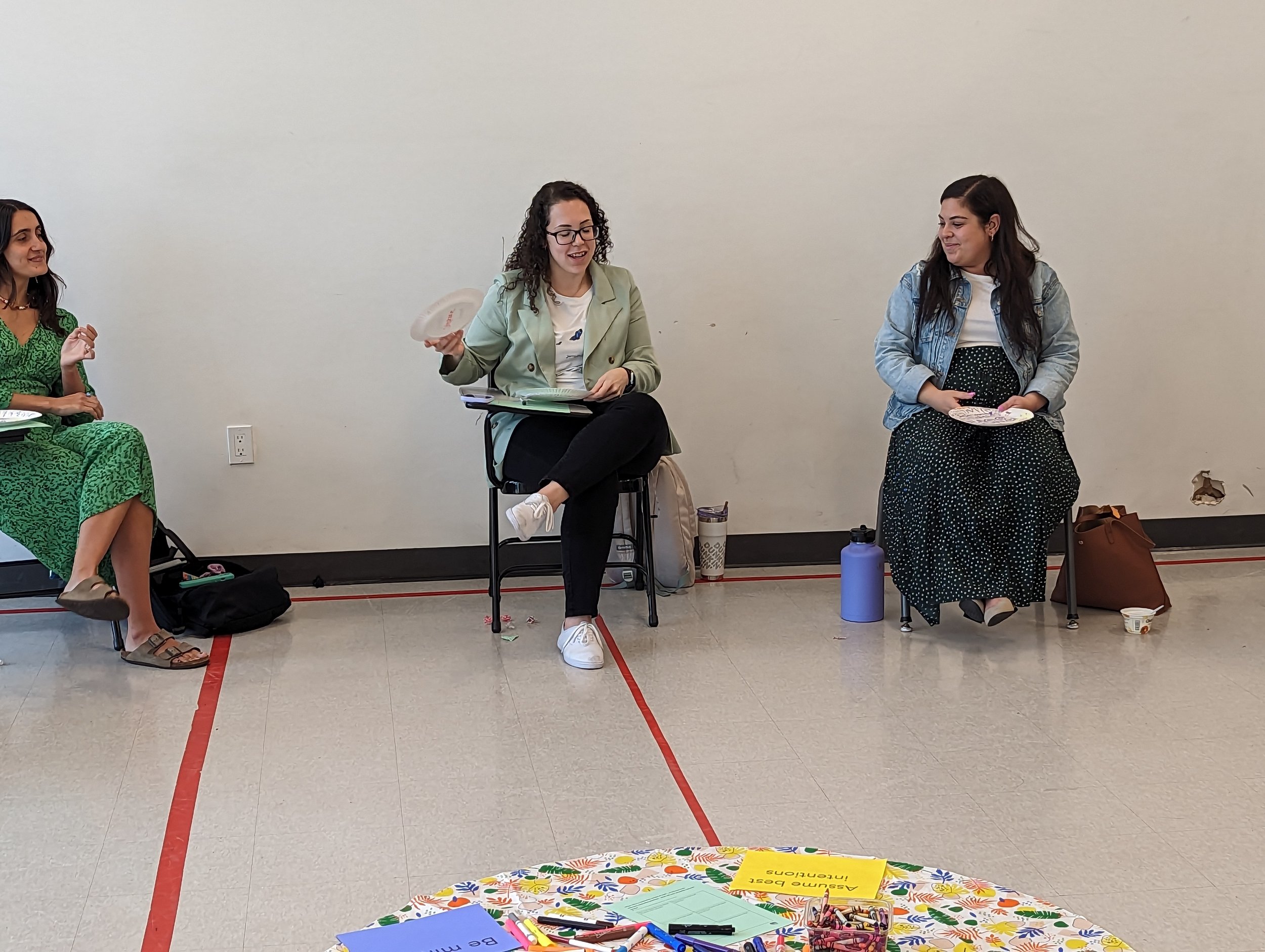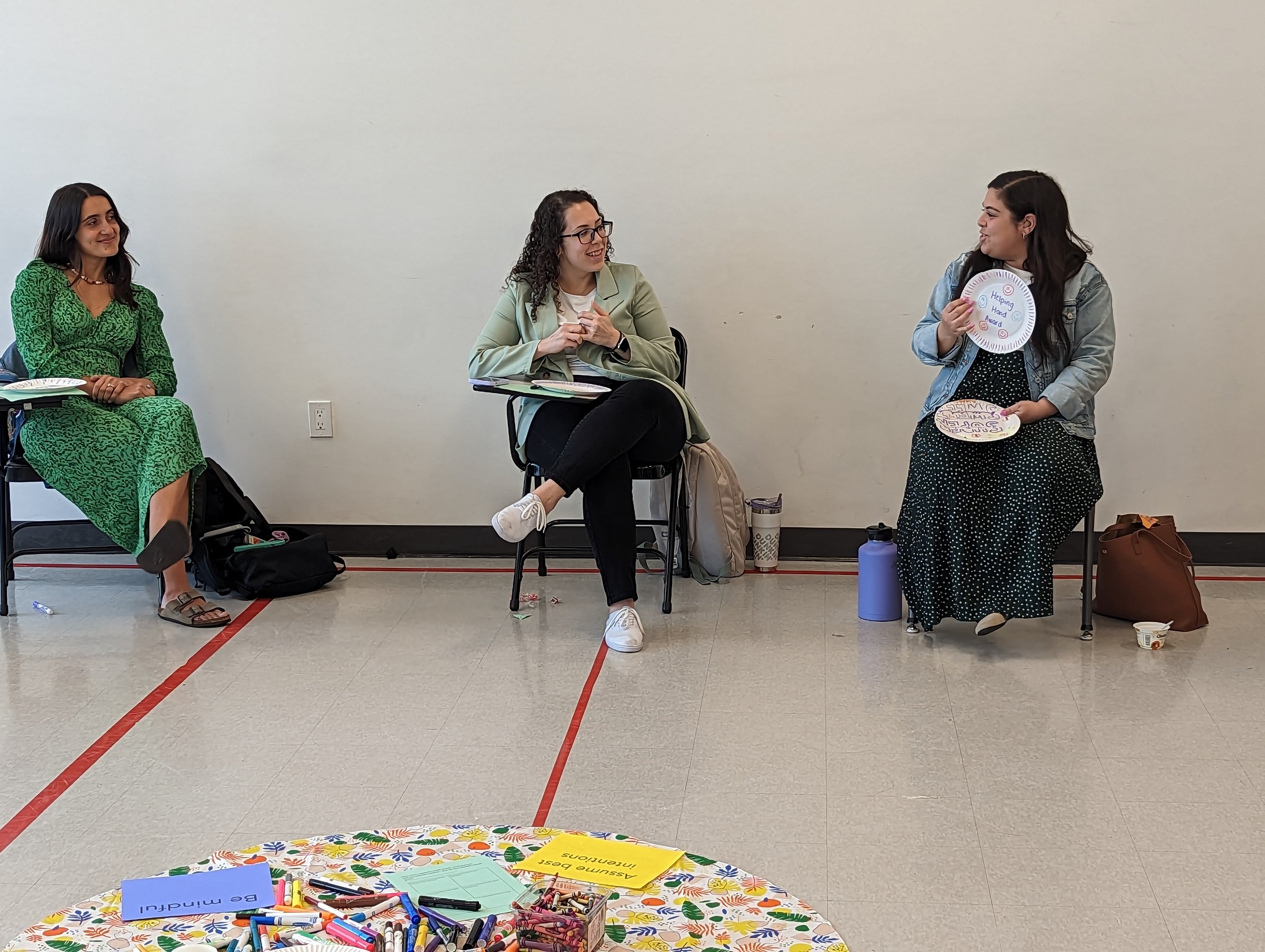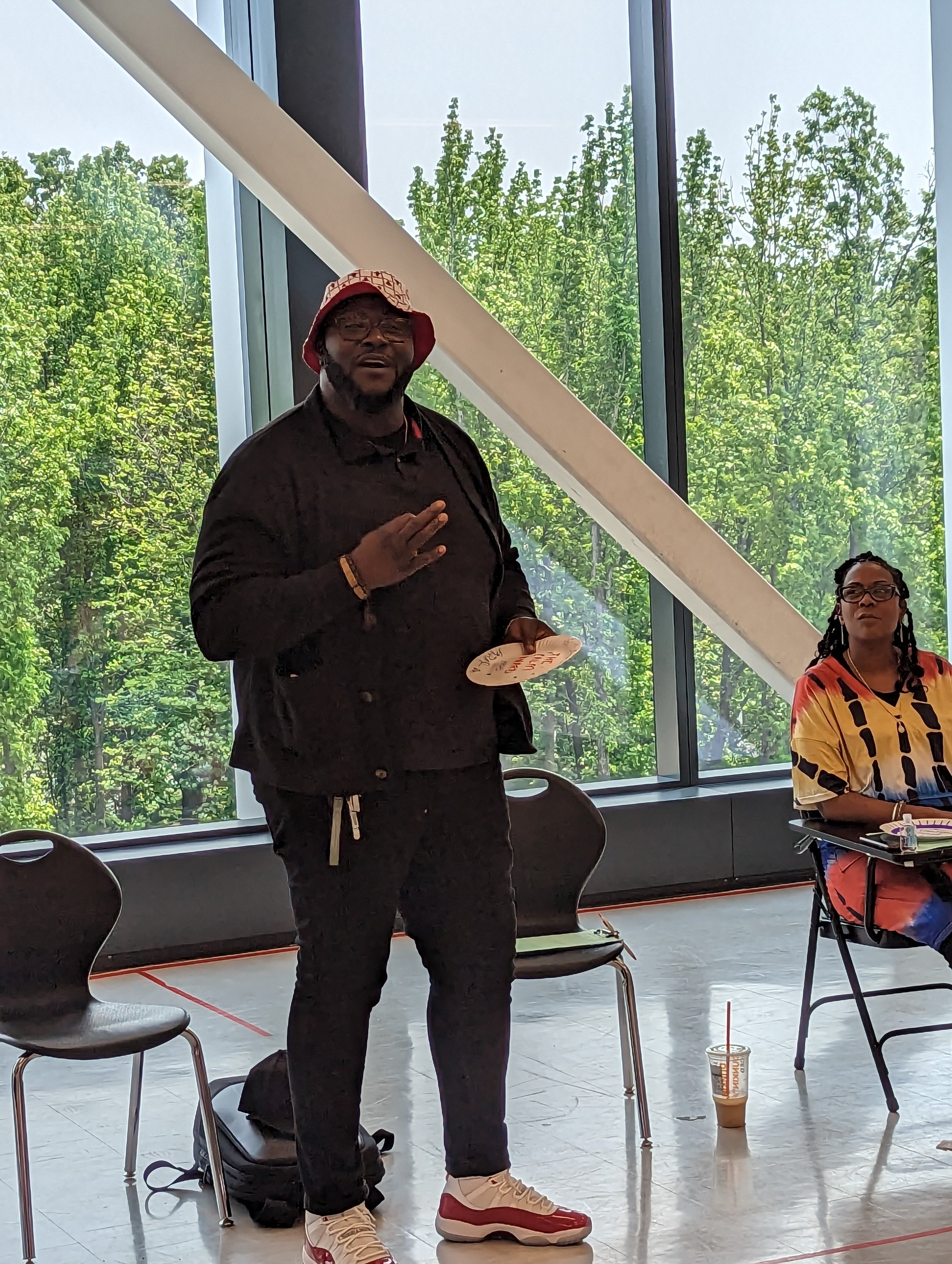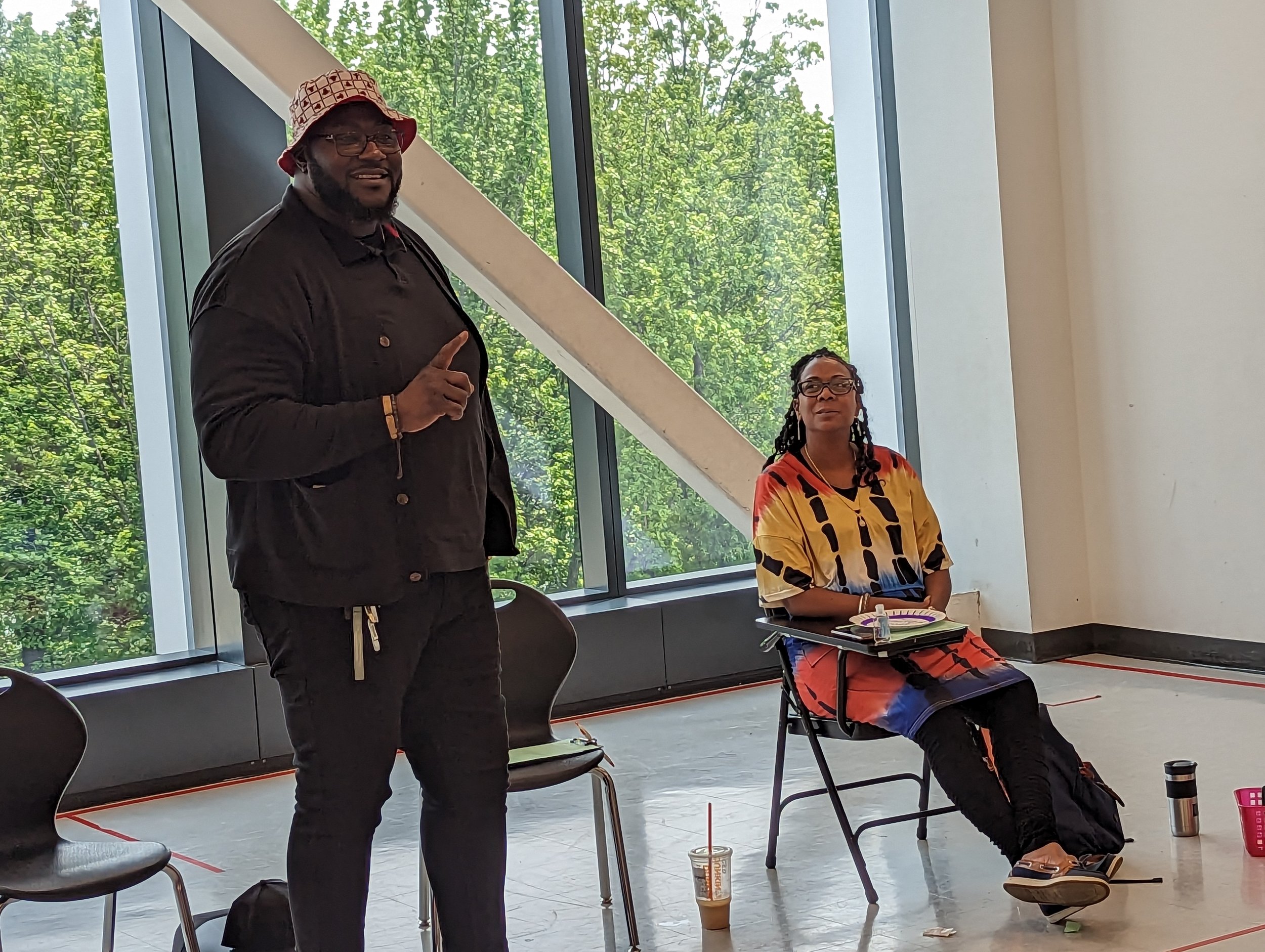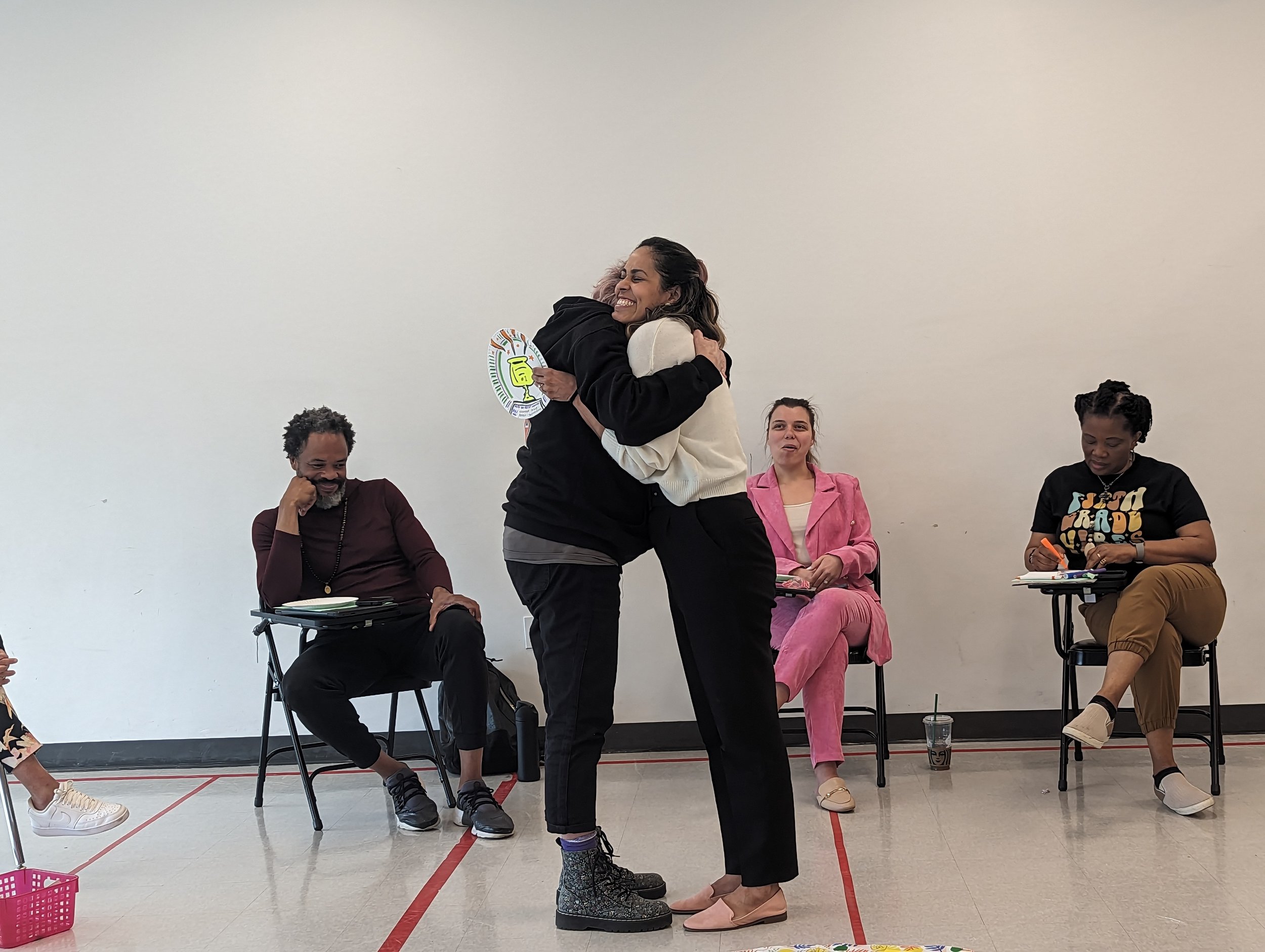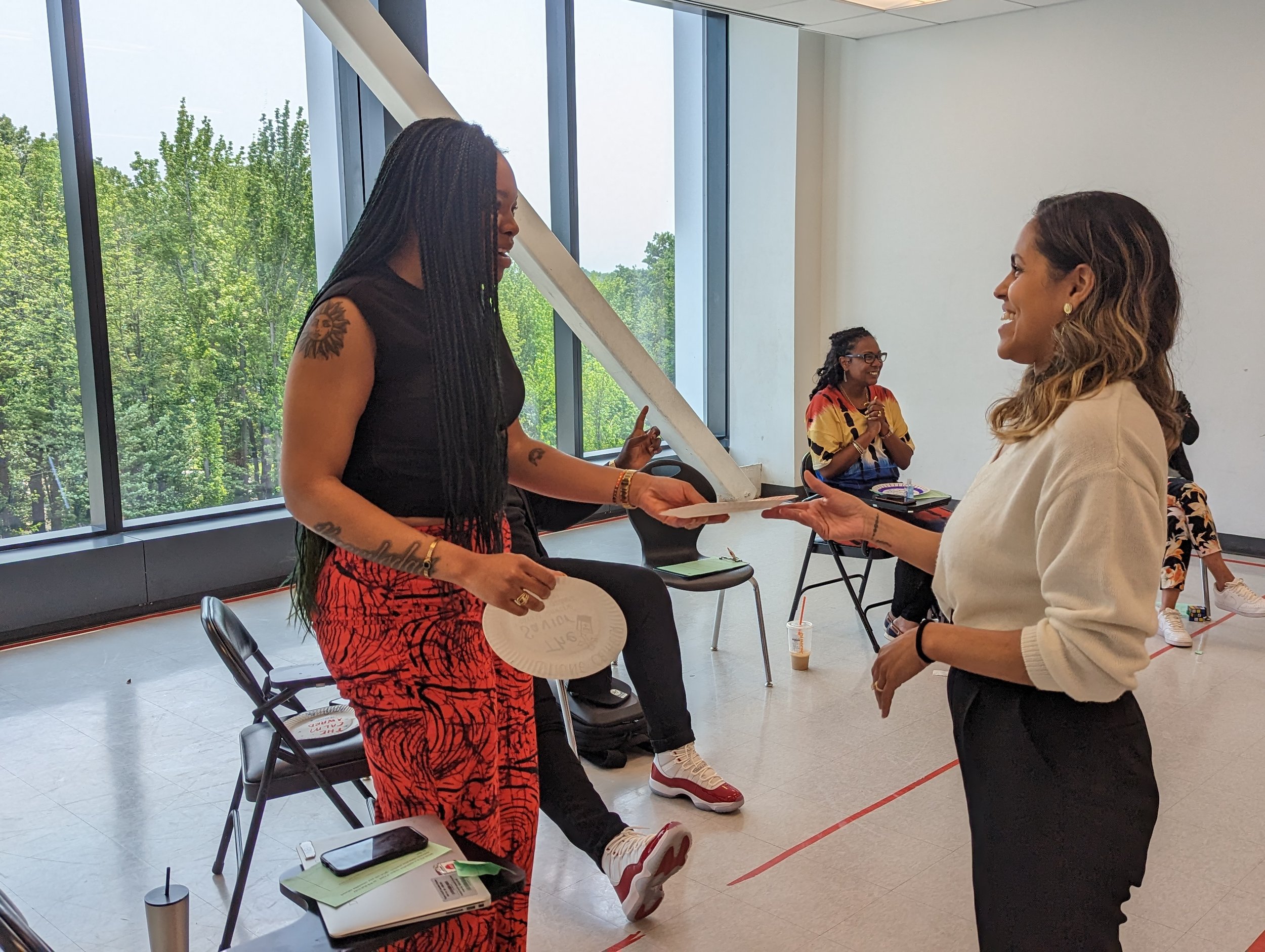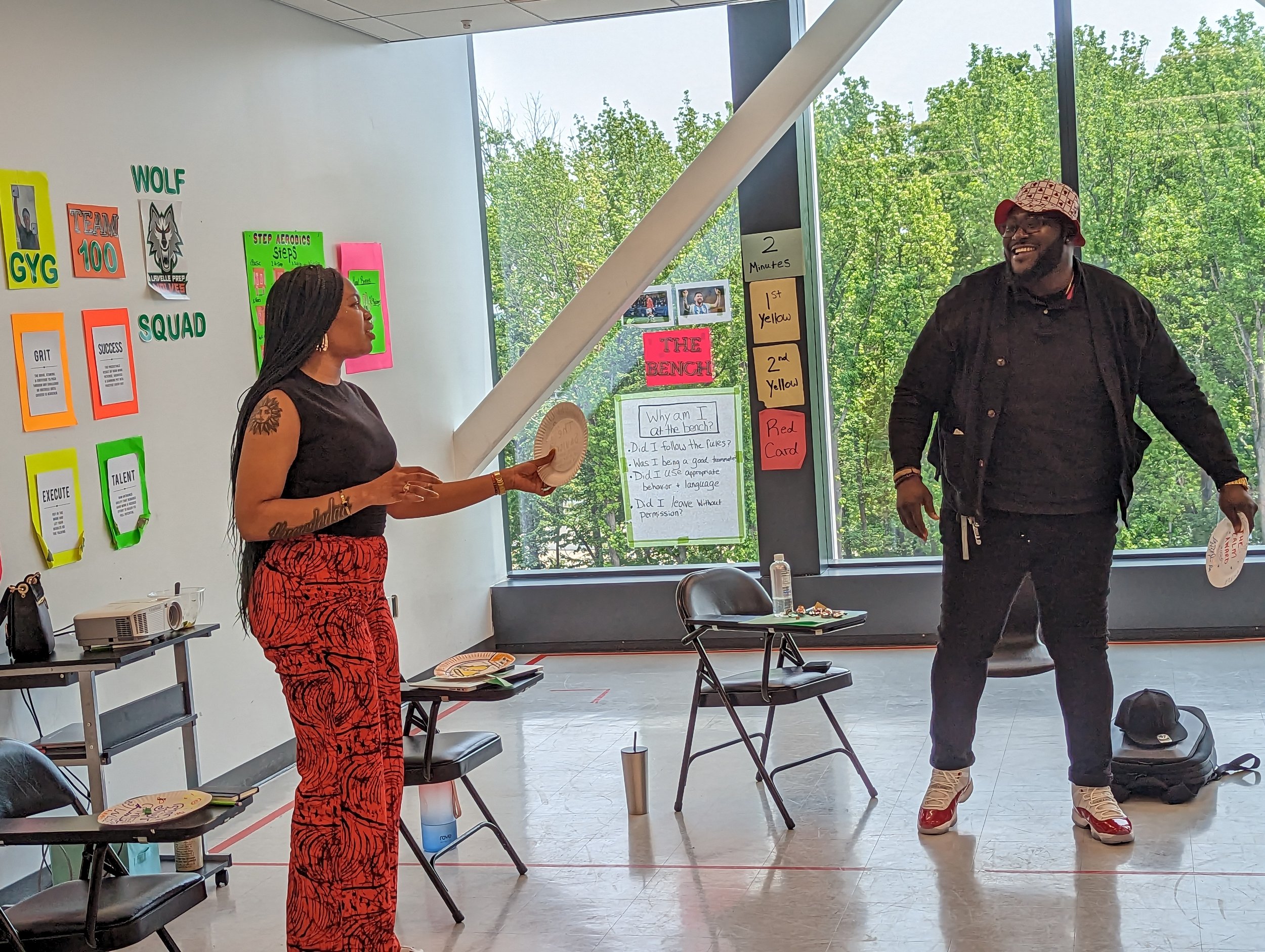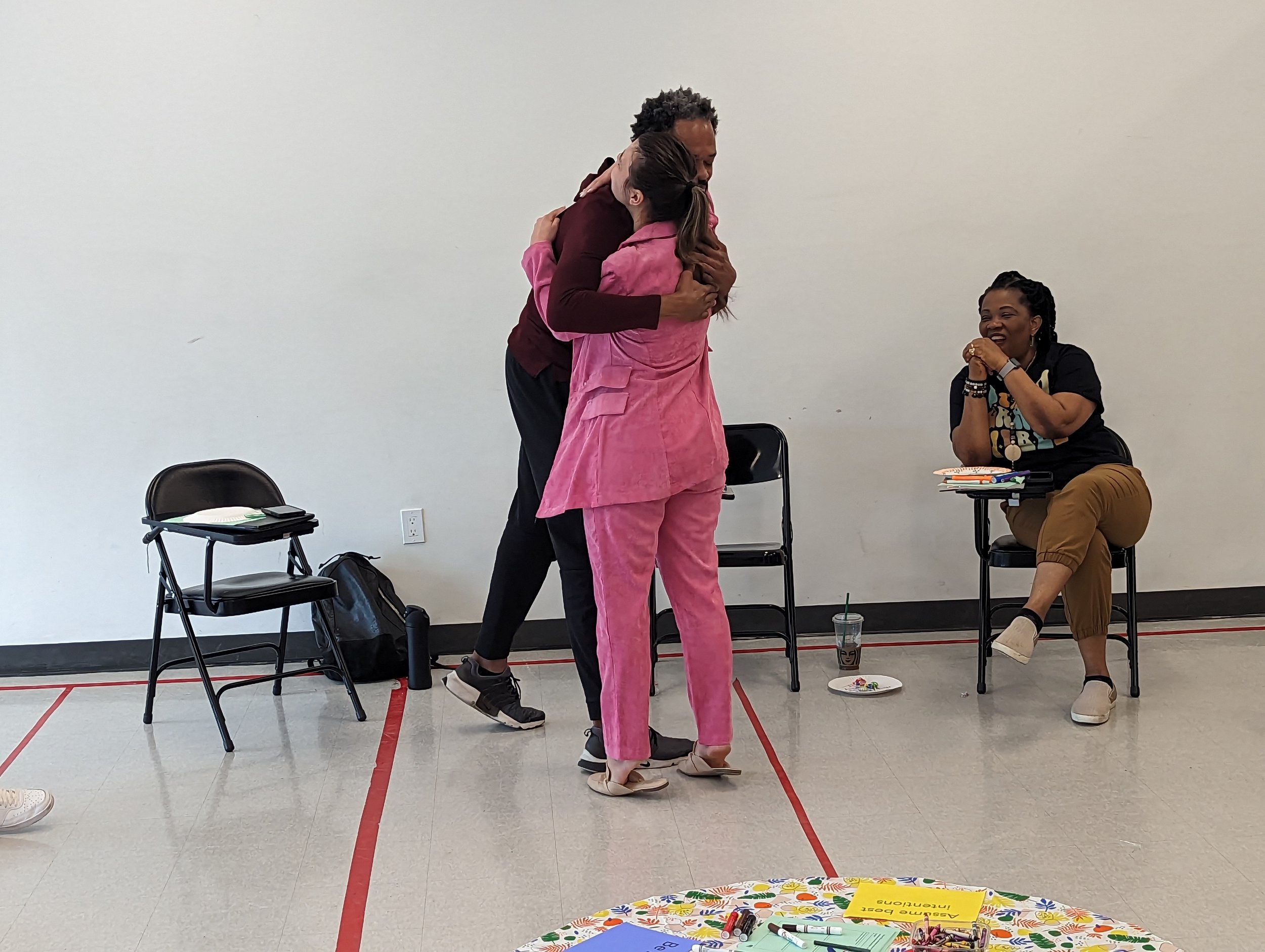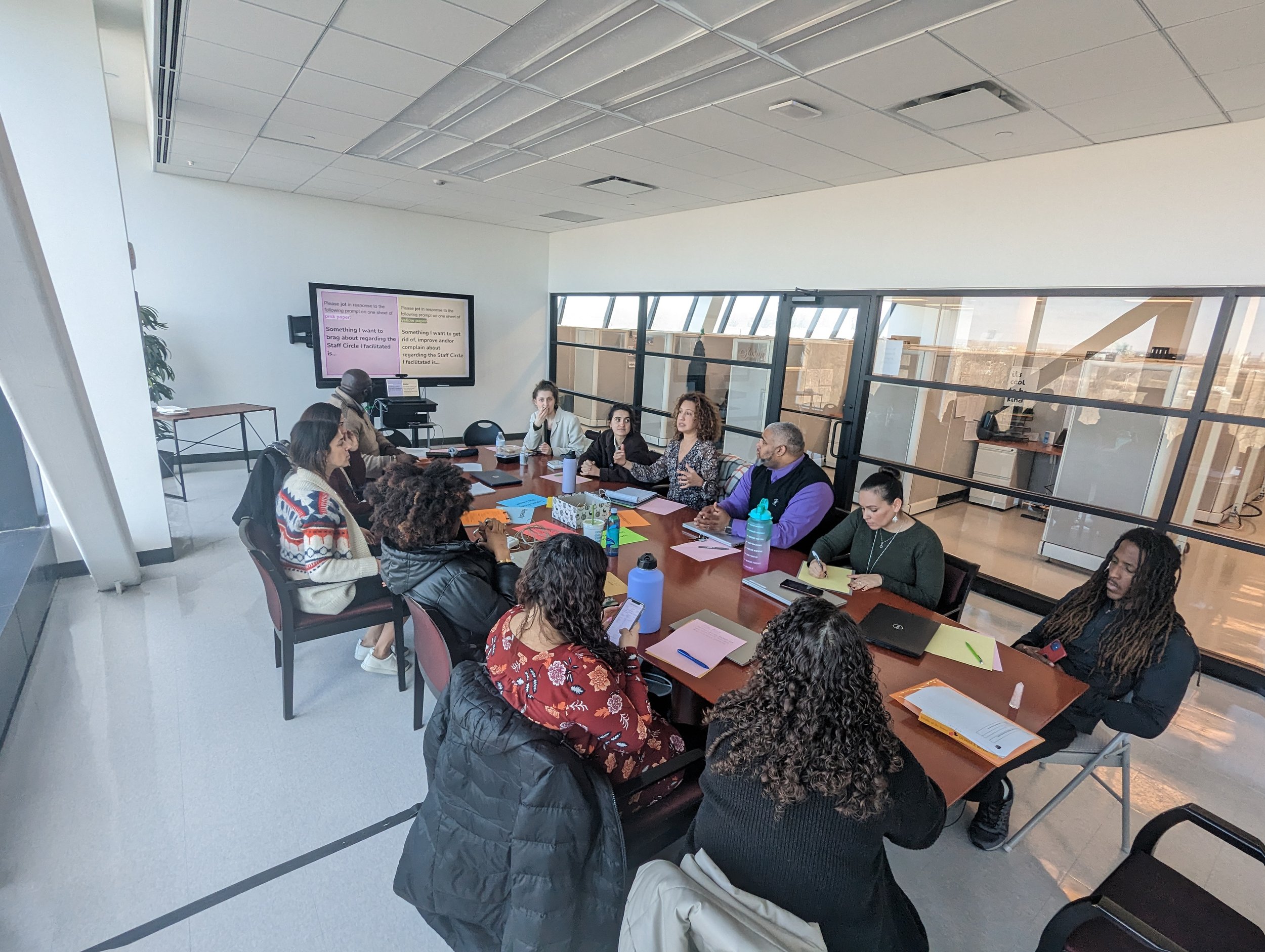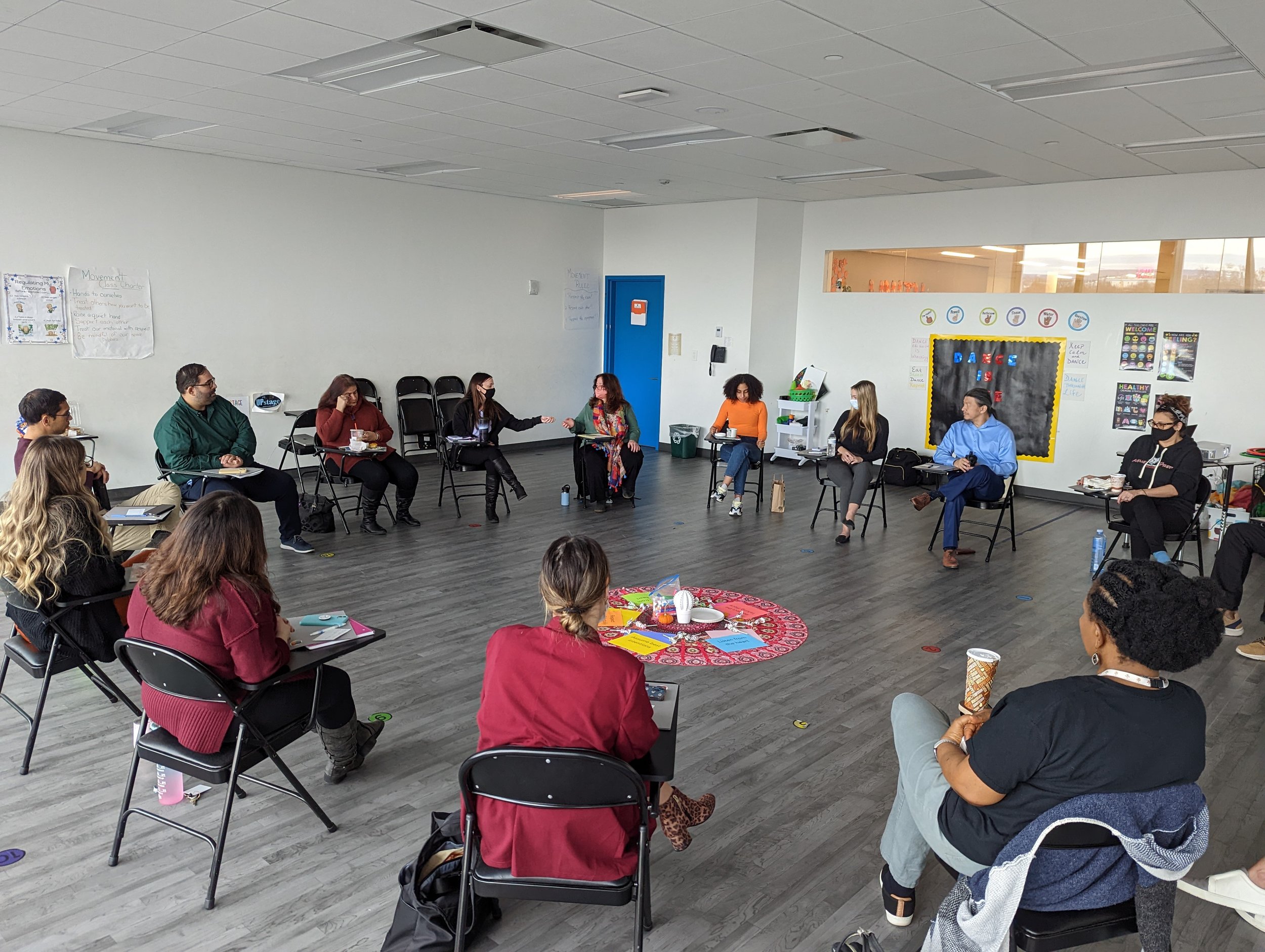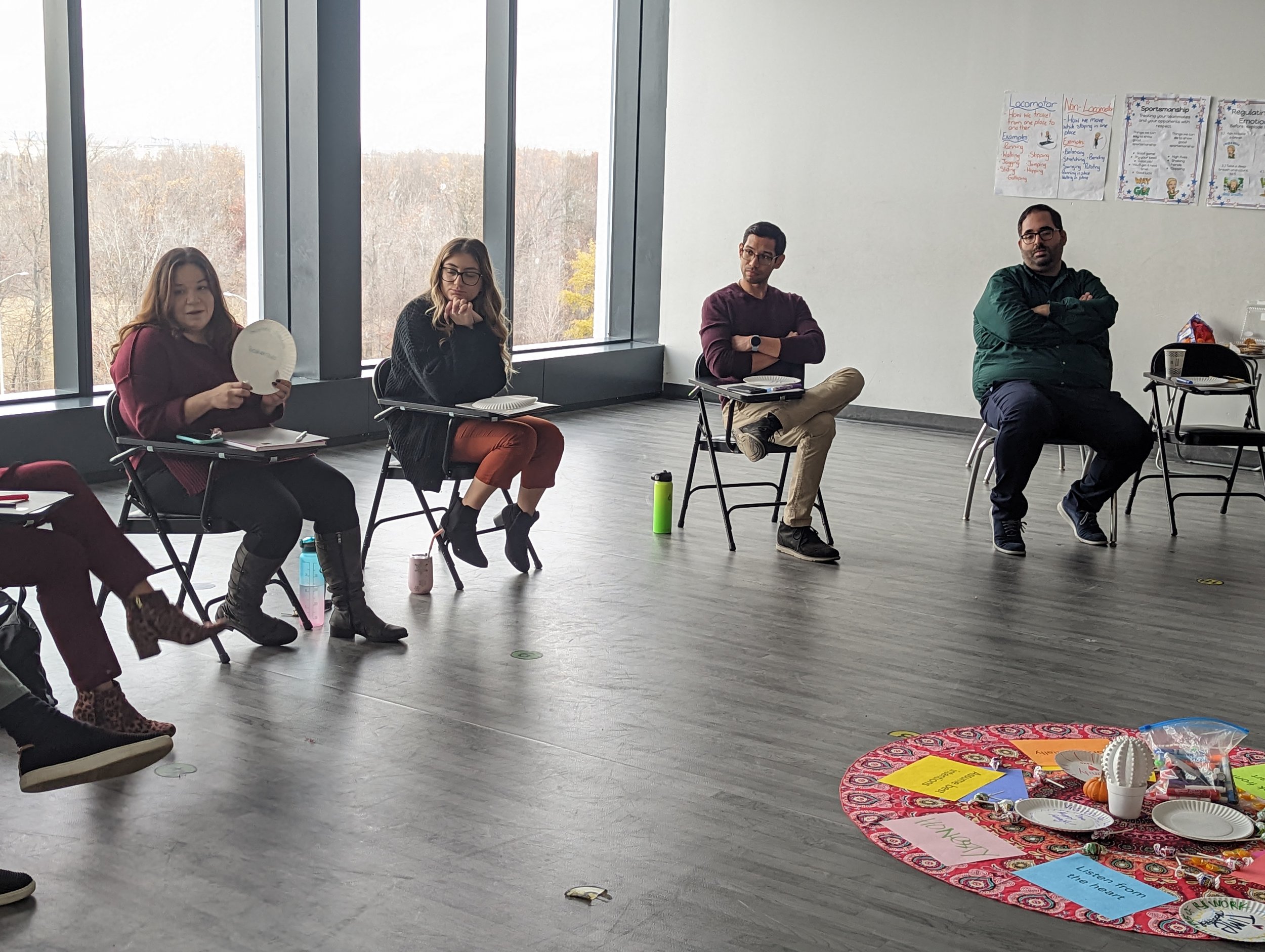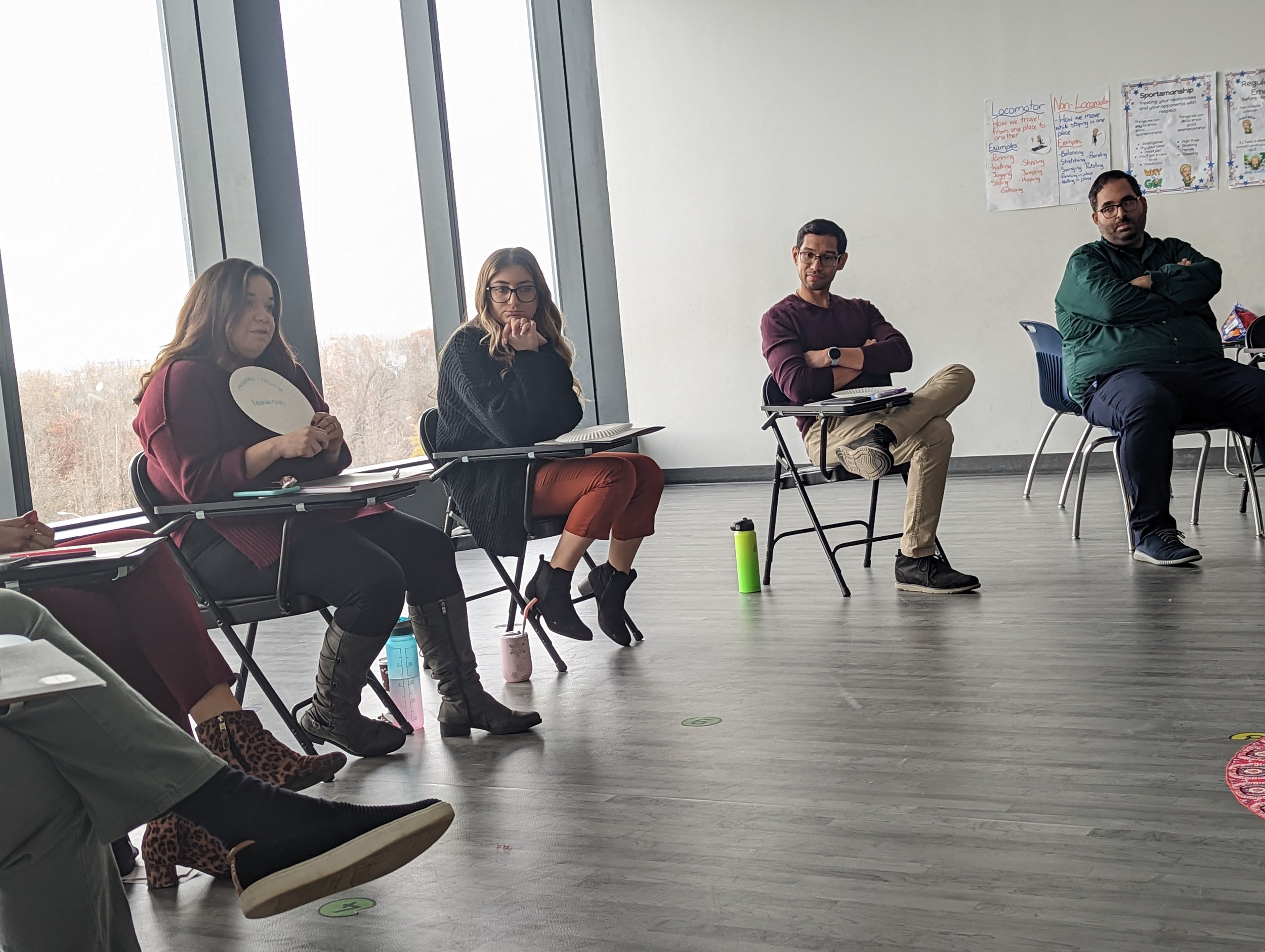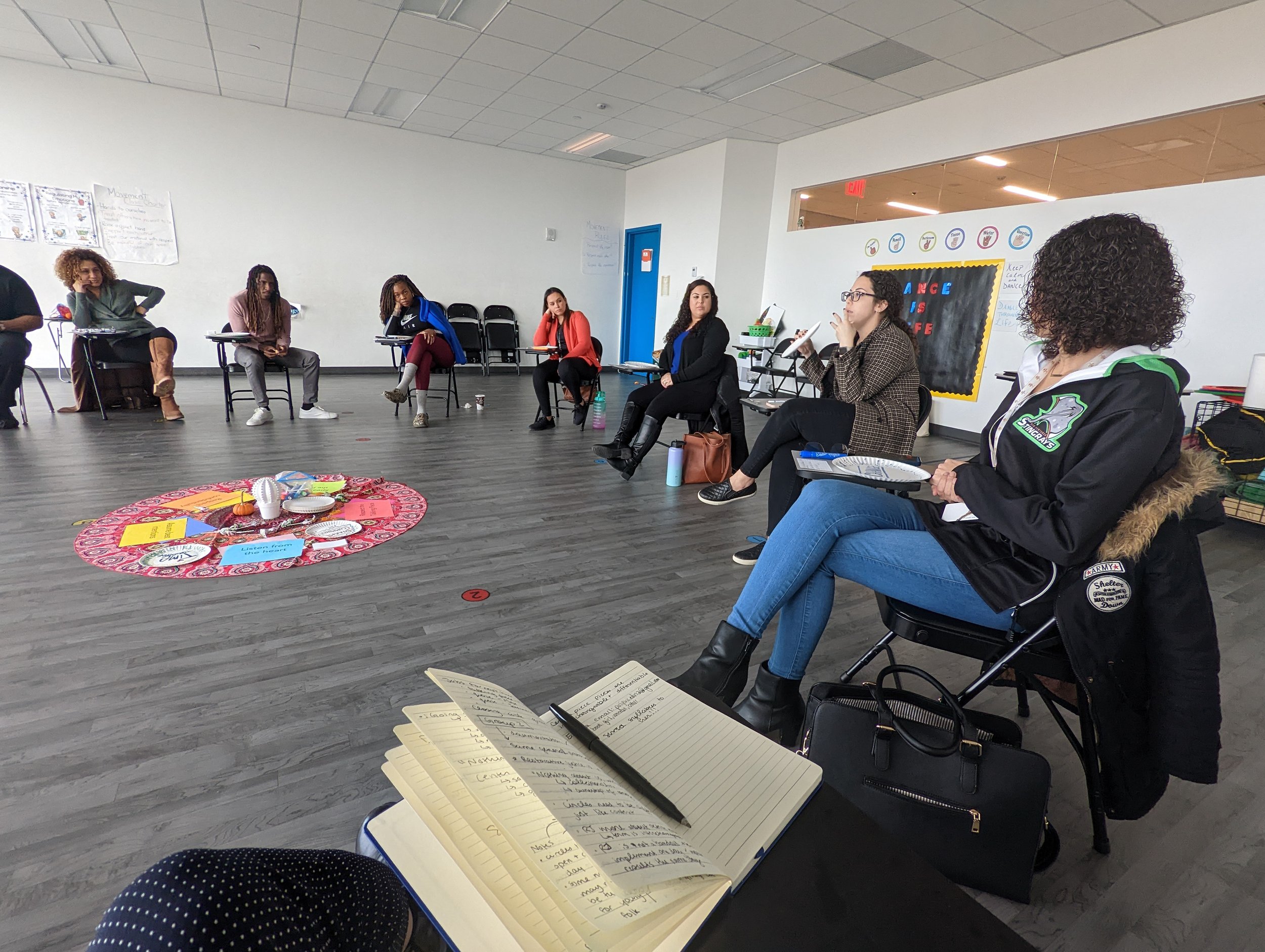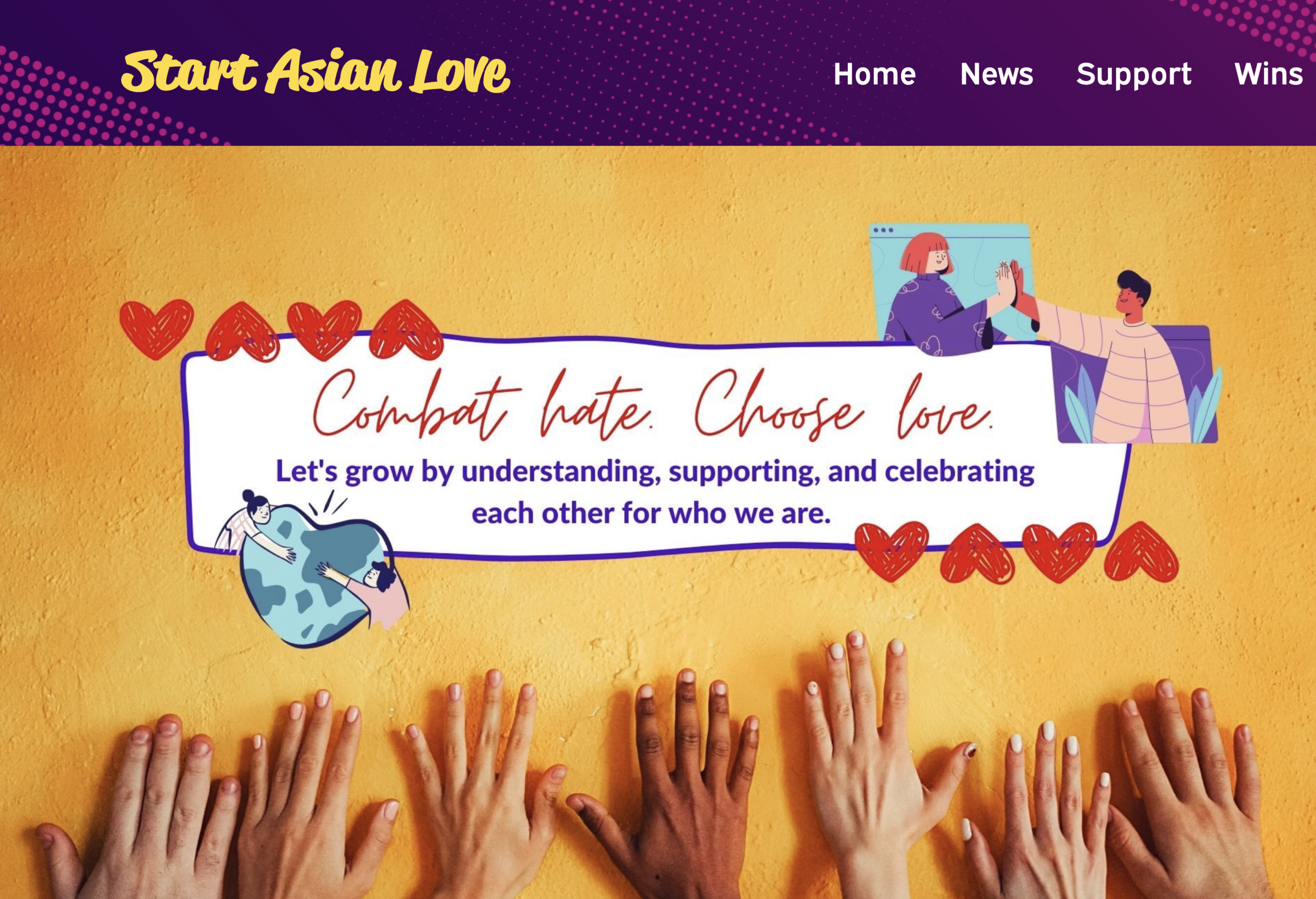PowerTools has some exciting news! We will now be offering the Guided Discipline Institute and the Engaged Classrooms Institute, designed by Engaging Schools. We’re honored that they’ve chosen PowerTools to carry on their legacy.
Read moreHonoring the life of Imran Uddin!
It is with heavy hearts that we share the passing of our amazing colleague and friend, Imran Uddin, on September 29th, 2024 after complications from a heart attack. Imran was a loving father and husband, a dedicated community leader, a successful entrepreneur, a devote Muslim, and a hilarious and playful man. He was always up to help out, and brought joy to his work with PowerTools.
Imran represented PowerTools at the Business Technology Early College High School (BTECH), located in Imran’s home borough of Queens. There he ran a game-playing elective during the “Kick Back and Chill” program that PowerTools co-created with BTECH’s SEL team. He also facilitated a self-care workshop during staff appreciation week
Beyond PowerTools, Imran was a pillar of his community. As president of the Parent Teacher Association at P.S. 63, he worked tirelessly to support the school, notably championing the opening of Queens’ first certified halal kitchen. A true example of Imran’s culturally responsive work in action, the Halal kitchen allows Muslim students to access religiously appropriate meals during the day. AND, as Imran, noted in The Queens Chronicle , “Over the years, just like kosher, halal has become synonymous with quality, hygiene and cleanliness. And so even the non-Muslim community is very receptive and welcoming to the fact that their children now have access to higher standards as far as food goes.”
Imran is third from left in the back row, at P.S. 63
As if that wasn’t enough to make him amazing, Imran was also the subject of the award(s)-winning documentary A Son’s Sacrifice, which won the Best Documentary Short at the Tribeca Film Festival in 2008. The film “follows Imran, a first-generation American who must confront his mixed heritage and gain acceptance from his father's immigrant community. On the holiest day of the year, Imran must lead a sacrifice that will define him as a Muslim, as an American, and as a son.”
The loss of Imran is profound, and/but the world was forever made better by his presence. We are grateful for the time Imran spent with us, and for his wonderful family, Abby Lovett-Uddin, PowerTools’ Program Manager, and their two daughters. Please join us in sending love and well wishes their way.
Client Spotlight: Restorative Justice at Integration Charter Schools
Celebrating Caribbean LGBTQ+ Activists for Pride + Caribbean American Heritage Month
June is both LGBTQ+ Pride Month and Caribbean American Heritage Month. To celebrate, we’re sharing with you, our PowerTools community, this one-pager that highlights Caribbean LGBTQ+ activists and provides resources to the general LGBTQ+ and Ally community.
Inclusion is at the foundation of both community and learning and so feel free to use this resource with students, colleagues, family, and/or friends to learn more about the intersection of these two beautiful communities.
There is POWER in Self Care
“Caring for myself is not self-indulgence, it is self-preservation, and that is an act of political warfare.” - Audre Lorde
As Mental Health Awareness Month comes to a close, we want to share these mental health and mindfulness resources with our community. There is healing power within the individual as well as within relationships. We hope some of these resources are a benefit to your self-preservation journeys— both personal and shared.
Women at Work @ PowerTools!
To celebrate our first time certification as a NYS Women’s Business Enterprise AND our re-certification as a NYC Women Business Enterprise, we want to shine a light on our amazing team members. This powerful, creative, and oh-so-competent team of women exemplify our mission as a “catalyst to community power and potential”.
Whether leading an Effective Teaming session at an Escape Room, coaching school Principals, helping adults and youth to create a polished resume, or running a focus group with youth, our team comes to the plate with expertise, warmth, patience and a deep passion for helping others build capacity.
Here’s to women at work!
Celebrating Women All Year Round
As Women’s History Month comes to a close, we want to share this fun resource with our community. Check out this amazing Ted Talk by author Chimamanda Ngozi Adichie called “We should all be feminists” and complete the adjoining activities we’ve provided on your own, with loved ones, or with your students!
Spread Holiday Cheer by Donating to Little Essentials!
Raising Awareness on World AIDS Day
Today is World AIDS Day— a day for raising awareness of HIV/AIDS, supporting those who are living with HIV, and remembering those who have passed away from AIDS-related illnesses. In honor of this day, we'd like to offer this HIV/AIDS resource to our valued community.
There is a lot going on in our world, and HIV/AIDS persists as a major global pandemic. Check out this slideshow that includes informative and personal anecdotes on living with HIV, preventing HIV, stopping the stigma, and the benefits of treatment. It also includes links to online resources around testing, PrEP, viral suppression, and more!
Celebrating Indigenous Peoples History All Year Long!
Happy Indigenous Peoples History Month! We are excited to offer this free resource for you, your students, and/or families to highlight and learn about Indigenous cultures, change-makers, and social justice efforts now and at all times of the year. This resource includes Indigenous history quick facts, a #NativeTikTok page, information on some amazing Indigenous activists, and more!
This educational and interactive experience starts with you and/or youth selecting the Indigenous activists you’d like to learn more about (see the PowerTools Indigenous Peoples History Month Slideshow). Enjoy as you read each activists’ description and click on their photo to get a peek into what they do. We also have outlined four activities for students to engage in either synchronously or synchronously. Enjoy and please share your feedback!
Celebrating LGBTQ+ History All Year!
Happy LGBTQ+ History Month! It’s our pleasure to offer this free resource for you, your students, and/or families to highlight and learn about LGBTQ+ transformers now and at all times of the year. This resource centers on some amazing individuals from the LGBTQ+ community whose work, advocacy, art, and other trailblazing endeavors have sparked transformation for LGBTQ+ culture, visibility, respect, rights, safety, and appreciation.
This educational and interactive experience starts with you and/or youth selecting the transformers you’d like to learn more about (see the PowerTools LGBTQ+ Transformers Slideshow). For each transformer, we’ve collected quotes, articles, and videos for you to dive into. We also have outlined four activities for students to engage in either synchronously or synchronously. Enjoy and please share your feedback!
Celebrating Latinx Heroes All Year Round!
Happy Hispanic Heritage Month! It’s our pleasure to offer this free resource for you, your students, and/or families to highlight and learn about Latinx activists at all times of the year. This educational and interactive experience starts with you and/or youth selecting the activists you’d like to learn more about (see the PowerTools Latinx Activist Spotlight Slideshow). For each person, we’ve collected quotes, articles and videos for you to dive into. We also have outlined four activities for students to engage in either synchronously or synchronously. Enjoy and please share your feedback!
Use this resource along with the below PowerTools Latinx Activist Spotlight Slideshow to partake in some social justice-infused fun!
Click the above image to access the PowerTools Latinx Activist Spotlight Slideshow
Teaching In A Time of Global Trauma
PowerTools has been reflecting on the past month as the state of the world has continued to unfold in unimaginable and yet perhaps unsurprising ways. To courageously open our eyes each day is to witness violence beget violence, trauma compounding trauma, oppression and racism in their myriad disguises. We are left with layers of questions as to how to begin to metabolize what we are witnessing as educators, and from that place begin to support ourselves and our students in taking appropriate action.
As educators working with youth in the United States, where do we locate ourselves in the midst of this time? What is the history we want our students to know? What is the history we want our students to inherit? As educators, how are we complicit? And where is our power? How do we support our students in finding their own power and claiming their agency as global citizens, becoming upstanders in their communities here and across oceans?
We offer these questions so we may collectively and individually begin to discover the answers by doing what we know how to do, educating ourselves and teaching each other. This compilation of resources is shared as a starting point to delve deeper into our learning.
Teaching for Justice
Center for Anti-racism Education - Toolkit
Learning for Justice - Social Justice Standards
Learning for Justice - Teach the Truth of Tulsa Race Massacre
Tulsa Race Massacre
Human Rights Watch - The Case for Reparations in Tulsa
The Tulsa Race Massacre 100 Years of Later, #Reparations Now Article & Video
Justice for Greenwood Foundation
Color of Change - Stand with Justice for Greenwood Campaign
Access to COVID-19 Vaccine as a Human Right
Amnesty International Annual Report 2020/2021
Why We Need a People's Vaccine To Beat Coronavirus - #PeoplesVaccine Video
Free the Vaccine COVID-19 Campaign
Access to the COVID-19 Vaccine
Palestine
Throughline - NPR Podcast Interview with Historian Rashid Khalidi
NY Times - The Children in the Israel-Hamas War Who Were Killed *Note - You will need a subscription for access
Visualizing Palestine - Fourteen Years of Childhood in Gaza Infographic
Jewish Voice for Peace - Archive of New York Times Articles
Free Yoga For ALL: JUNE 20
People- Join us as we celebrate you though movement/yoga on June 20th
On June 20th, we invite you all to move, stretch and breath with us as we celebrate together. PowerTools is claiming June 20th as a holiday to celebrate your resilience, diligence, compassion, advocacy, hard truths, equity and love. School staff, students, colleagues, and all friends of PowerTools- we honor how you’ve carried on and stepped up through amazing difficulties, changes and challenges.
This free yoga class for ALL of our friends (yes, this means you) falls within PRIDE month. (YIPEE!). One thing I love about PRIDE is that it stems from an action for liberation and freedom from oppression, The Stonewall Uprising in June, 1969, when queer and trans people fought for equity against police oppression and systemic discrimination. There is still so much queer history, leadership and heroes not taught in schools. Please check out this great video narrated by Billy Porter to learn more about the history of queer political action in the US.
To sum it up, the next PowerTools free for all yoga class is this Sunday, June 20 at 10am right here! We know and appreciate that it is Father’s day. If you are a Father, come join us, If you are not, come and join us! We’d love to see you all.
Please spread the word and join us via zoom for this hour long, all levels 10am yoga class. Meet us on Zoom! https://us02web.zoom.us/j/87197142265?pwd=N0VlOHk4aEYrbTM0RVBKSHdxZjY0Zz09
If you have a yoga mat, great! If you don’t, that’s ok too. We’ll work it out.
“All levels” means we will offer a lot of modifications for the poses we do. This helps you find the pose that’s right for your needs and your body on that day.
You’ll never have to turn your camera on if you don’t want to.
Unsure if this is for you? Message us and we can figure it out together.
Yoga’s benefits are many. Check out this article for an overview of some science-backed benefits of yoga.
AAPI resources for education and love
PowerTools is honored to share the Start Asian Love website, created by Waverley Leung and Emmanuel Jose, software engineers and graduates of NYC’s Tech Talent Pipeline Web Development Fellowship (WDF) at Flatiron School. This beautiful site, built from scratch, offers news, resources, history, ways to donate, and wins related to AAPI communities.
Teaching Tips Using this Website with Students
1) Students Take Action Against Hate: The Support page offers a gorgeous and informative infographic, Your Guide to Bystander Intervention as well as a link to a one hour Bystander Intervention Training that students can sign up to take. Teach your students intervention strategies, discuss how this training can support intervention against racism, bullying and other forms of harassment/violence/hate.
2) Students as Historians and Current Events Knowers: The News section has lots of options for students to dive into. Give them the choice of what they’d like to read about (synch or asynchronous) in small groups or individually. They can then share their learnings on a Padlet, verbally, or through drawings (a research-proven way to retain the most information).
3) Students as Advisors: Waverley and Emmanuel want feedback about this site. Before sharing, ask students to determine what makes a website informative, accessible, attractive, and attention grabbing. Then introduce the site, ask students to read the site thoroughly, discuss, and then complete this feedback form, which will go directly to Emmanuel. They thank you in advance.
The PowerTools Connection
PowerTools has had the pleasure of working with NYC’s Tech Talent Pipeline and Flatiron School, providing social supports and resources to the three Web Development Fellowship cohorts, who participated in an intensive 19-week virtual coding bootcamp. The Web Development Fellows have worked super hard and PowerTools has provided support through workshops, coaching, coordinated resources, social, emotional support, and resource allocation. We’ve loved working with these amazing adults who have gone from no professional coding experience to Software Engineer in less than a year.
Free Yoga For School Staff: MAY 9
Happy Teacher Appreciation Day and Week!
We’ve said it before, and we’ll happily say it again: We appreciate you. We honor you. We believe that you, dear school staff, deserve the space and time to take care of you.
A couple of years ago, we were at a multi-day training in Boston with a gregarious, opinionated and passionate group of teachers, school social workers and school leaders from around the country. Somewhere in the middle of day two, the workshop facilitator asked us to each name something we did for self-care recently. And for the first time all weekend, the room was silent. Pin-drop. It stuck with us.
We know that as a group, school staff are givers. We also know that givers often forget to prioritize themselves. This is the number one reason we created monthly free yoga for all school-based staff. Let’s hold this space together.
The next PowerTools free for all school-based staff yoga class is this Sunday, May 9 at 10am!
To be clear, we know it’s also Mother’s Day. We really like the idea of free yoga on Mother’s Day. Think about it this way: If you are a mother… perfect! If you love a mother… perfect! If you know a mother… perfect! In other words, this Sunday is the perfect day for us to do yoga together.
Please spread the word and join us via zoom for this hour long, all levels 10am yoga class. Register on our Shop/Sign Up page, we’ll send you the link. It’s that easy.
If you have a yoga mat, great! If you don’t, that’s ok too. We’ll work it out.
“All levels” means we will offer a lot of modifications for the poses we do. This helps you find the pose that’s right for your needs and your body on that day.
You’ll never have to turn your camera on if you don’t want to.
Unsure if this is for you? Message us and we can figure it out together.
Yoga’s benefits are many. Check out this article for an overview of some science-backed benefits of yoga.
Learning With a Discount!! What could be better?
This week, May 3rd-7th, 2021, John Catt Publishing is offering a 40% discount! That means that you can finally pick up those copies of Connect The Dots: The Collective Power of Relationship, Memory and Mindset In the Classroom that you’ve been meaning to purchase! Yes!!
What is Connect The Dots: The Collective Power of Relationships Memory and Mindset in the Classroom?
This book, written by Tricia Taylor with Nina Dibner (of PowerTools), leads you though a comprehensive and research-based deep dive in to three keys of educating: building relationships, helping youth maximize their memory, and developing/honing a learning mindset. Each chapter starts with a research section that lays the foundation for the practical and student-tested K-12+ grade applications featured in the second section. The chapters are rounded out with a third section that provides a professional learning session outline and related tips on the chapter’s topic.
This is the book you'll wish you had read years ago! This book takes into account new learnings in cognitive science, trauma informed practice, culturally responsive practice, and Social Emotional Educational Learning. I learned things working with Tricia on this book that I had never known during my 13 years of teaching (plus 13 years of consulting). I promise you’ll learn something new, and you’ll boost student engagement at the same time.
Fun fact: Tricia and I met while teaching in Bushwick, Brooklyn decades ago. Tricia later moved to London and our mutual respect and friendship endured. This book, many years in the making, spans two continents as Tricia continued to teach and consult in London, and I run PowerTools from NY. The book is incredibly relevant for both US and UK schools, and you’ll soon spot that the spelling is in British English. Tricia is now teaching in gorgeous Mallorca, Spain.
Should I buy Connect The Dots? (short answer: yes)
1) If you’re a teacher, you’ll appreciate the applicable, relevant and practical nature of this book! We bring the research to you and provide examples and activities for grades K-12+ that help you deliver pedagogically strong ways to build relationships, maximize student memory, and help student develop (or hone) their learning mindset. This book is like a manual- you can read through any section that speaks to you, without having to read the whole thing before knowing how to apply the teachings. Most importantly, it’s written by teachers (us!). We know that there’s no magic bullet or perfect classroom. We’re sharing strategies that we’ve used, developed, and practiced with real students.
2) If you’re a school leader, educational consultant, or professional development person, you’re in luck! The book has a Leadership section at the end of each section, with a Professional Learning Session outline right there! You can train your staff in the content, even if they don’t have the book. However, we find this book to be an excellent investment for your staff! That way, you’ll have a fidelity of language, a heightened level of practice, and a great resource you can refer to in PD sessions and classroom visits. Some schools use Connect The Dots for whole staff PDs, staff book clubs, department-wide guides, and for use by Assistant Principals to guide coaching. This book is going to help you support new and veteran educators alike.
3) If you’re in pre-service and will be an educator soon, this is the book for you! You’ll be ahead of the crowd by knowing the why and how of these three key ingredients of teaching.
4) If you’re teaching (or leading) in a hybrid environment, this book is key. Connect The Dots hit the shelves in February, 2020, a month before things started really shutting down and shifting academically world-wide. Although we don’t offer explicitly online strategies, this book is a great guide for you. We center building relationships, and take a trauma-informed lens, which is what all educators need at this juncture. Students need a sense of psychological safety and belonging. They need a low-stress environment where they can be taught to appreciate and enhance their self-efficacy. They need and deserve effective pedagogical strategies that reflect youth development (cognitively and emotionally).
A page from the research section of the Relationships chapter.
Finally, send us your feedback!
We’ve gotten great reviews so far from some top educational thinkers, AND we’d also like to hear from the experts on the ground: YOU! Write in the comments or email Tricia or Nina with your thoughts. Also feel free to follow us- Tricia’s Twitter is @TriciaTailored. Nina’s is @PowerTools_1
From Snapchat to the Supreme Court: This Ruling will Impact Youth and Schools
The year was 2017 and 14 year old Brandi Levy was pissed! She had tried out for Varsity Cheerleading at her Pennsylvania high school but didn’t make the team. She’d have to spend another year in Junior Varsity. So Brandi did what many teenagers might consider, she vented on Snapchat, posting a video (middle finger up) and text (“F--- school, f--- softball, f--- cheer, f--- everything,”), which disappeared after 24 hours.
What Brandi, and the rest of us, didn’t realize was that her actions would lead all the way to the Supreme Court, with students’ first amendment rights hanging in the balance. According to Justin Driver, Yale Law Professor and author of The Schoolhouse Gate: Public Education, the Supreme Court, and the Battle for the American Mind, “This is the most momentous case in more than five decades involving student speech.”
So, let’s break it down:
What happened?
After Brandi’s disappointing news, she went to the Cocoa Hut that weekend with a friend. While there, she posted this Snapchat to 250 people. Although it was gone by Monday, someone screenshot it and showed it to another friend who happened to be the kid of one of the cheerleading coaches. Brandi was then barred from cheerleading for the year, since the schools said she had violated the team rules of showing respect and avoiding “foul language and inappropriate gestures”.
How’d this first get to court?
Brandi’s parents tried to convince the school to let her cheer to no avail, so the family went to the ACLU and who sued the Mahanoy Area School district in federal court. Brandi won the lawsuit, and it was declared that Brandi’s punishment was a violation of her First Amendment rights. She was put back on the Junior Varsity team and made varsity the next two years. The PA Court of Appeals later reinforced the decision saying that the Snapchat post happened outside of school time, not on school grounds, and didn't cause "material and substantial" disruption to the school so she should not have been disciplined.
What’s happening now?
The Mahanoy Area School district asked the US Supreme Court to take up the case and this Wednesday the case will be heard by the nation’s highest Court. They will decide when/to what extent schools can discipline students for actions and speech that happen outside of school grounds and/or during non-school hours. The school district is arguing that the ability to discipline is important in order to counter cyberbullying, racism, and harassment. Brandi continues to argue that she (and other youth) should be able to have free speech when not at school.
How might this affect youth?
This question is best answered by asking your students directly. What would it mean for youth if the School district wins? What would be the pros and cons if Brandi Levy wins?
Feel free to scaffold this discussion with information from this blogpost and related articles such as one from BBC news or one from The Washington Post via Boston.com.
We do know that if the school district wins, that students will be open to school discipline for statements, actions and gestures shared on social media outside of school time and outside of the school campus. If Brandi Levy wins, then students’ outside of school speech will be a first amendment right, but it may make it harder to curb dangerous, racist, or harmful language/actions.
Thinking Ahead: Some Steps for Schools after the Chauvin Verdict.
A few hours after the conviction of ex-police Derek Chauvin for the murder of George Floyd, I saw a statement on Instagram that’s been on my mind ever since. I can’t remember the exact wording (nor the author, unfortunately), but it was something like this: “Remember, before Black people are criminalized by the police they are criminalized by schools”.
This is true. While the number of suspensions fell during the 2018-2019 NYCDOE school year, racial disparities are still significant. Black students comprised almost 45% of the city’s suspensions , despite making up only 26% of the student population. (Chalkbeat). Black girls are no exception. The Georgetown Law Study in 2017 and 2019 found that “Nationally, black girls are suspended more than five times as often white girls, and black girls are 2.7 times more likely to be referred to the juvenile justice system than their white peers.”
While these statistics loom large, I see an open door; an amazing opportunity for schools to shift gears and create proactive accountability and equity in your schools. We can commit to not returning to “business as usual” or even “the new normal”. Schools can take steps to move forward intentionally toward equity. This blog post covers just two of many steps your school can take NOW in planning for the fall.
Create a healing-centered school culture.
When children under 18 experience adverse childhood experiences (ACES), such as neglect, witnessing violence, racism, or growing up in a house mental health problems, trauma can result, increasing risk for academic, mental and physical challenges. After a year like 2020 and the start of 2021, we all need some time and space to heal. Please keep in mind that not only youth, but BIPOC school staff, may be exhausted, hurt, and/or angry and need space and support to heal from trauma as well. I recommend schools start thinking NOW about creating a healing-centered school culture. I particularly like the Community Roadmap to Bring Healing-Centered Schools to the Bronx, authored by the Healing-Centered Schools Working Group, a coalition of parents, students, advocates, educators, and mental health providers working to bring healing-centered practices to all Bronx schools. This blog wont touch on restorative justice practices, nor sustained anti-racist training for all staff, but those elements are essential to building a healing-centered, anti-racist school.
Listen to the experts: Youth
Not only have young people showed amazing resilience and skill building this year, they have also gained expertise on what school systems, staff, and sessions make them feel respected, seen and valued. If you want to build an anti-racist, equitable school, you’ve got to center youth voice. Here are a few steps I recommend.
1) Design surveys and hold focus groups this spring to ask students about their experiences at the school. Do they feel included, respected, valued and seen at school? To what extent do they see their race/religion/gender/etc represented in the curriculum? Which policies seem fair and which hurt their chances for success? What do they notice about racial dynamics at the school? Do they feel the discipline system is fair? To what extent do staff address racial bias between students? To what extent do their teachers talk about race and racism in class? When thinking about anti-racism and equity, what are their suggestions for the school this fall?
2) Offer students decision making power. This may look like a student government, Advisory Council, or student members on the Restorative Justice or Equity teams. You may ask students to join the hiring committee.
3) Create a culture of feedback. By this, I mean feedback from students to school staff. Course evaluations, post-unit feedback forms, and focus groups with teachers about content and methodology all build engagement, youth power, and equity. Chris Emdin’s book For White Folks Who Teach in the Hood…and the Rest of Y’all Too thoroughly lays out ways to integrate feedback and youth input in the classroom.
4) Design structured opportunities for youth to explore race, and racism, while also highlighting BIPOC success and resilience. This should be happening in class, and it’s also important for discussions to be held in spaces where students are not graded. I’ve been impressed with Learning To Work, (LTW), a community based organization partnered with Satellite Academy in NYC, which has developed an open forum called “I Matter”. I Matter acknowledges the personal agency/sovereignty of the individual voices of the community. According to Shanika Blount, LTW Program Director, “I Matter themes revolve around race, class, gender and culture in general. We draw from current events but the meetings are student driven. As students share, the space takes shape and it can be one where common threads are very apparent and it's a love fest or it can be one where healthy debate takes place- many times it's a mix. In any event, our goal is not to create an echo chamber but to make space for critical thinking-even if it leaves some folks uncomfortable. I Matter represents the place for this to happen and nothing being 'held against' you for sharing or having diversity of thought”.
Learning To Work’s “I Matter” virtual forum for youth. Satellite Academy, NYC
Trust Building Takes Center Stage
About five years ago, PowerTools expanded our client base beyond schools to include youth-serving institutions, non-profit organizations and companies. At first, I was intimidated about the jump, thinking that perhaps our PowerTools team might not know enough about workplace efficacy and engagement in these new (to us) settings. However, as time passed, a foundational theme emerged across clients (from a doggy day care to Dior, from John Dewey High School to JP Morgan Chase). TRUST turns out to be a key to community, communication, efficacy, and equity.
With trust we gain a sense of psychological safety. Trust allows us to ask questions, assert and challenge ideas, innovate, collaborate, and delegate. High trust allows us to have difficult conversations and manage constructive conflict, necessary skills when creating an equitable and inclusive environment. Students need to trust teachers, educators need to trust each other, employees need to trust colleagues and bosses. Trust is the foundation to all relationships, both individual and collective, personal and professional. For that reason, PowerTools now centers trust building in our work.
Check out these examples of trust building work we’ve done with two of our fantastic partner/clients this month.
Building Trust through Storytelling @ MECA
MECA, an early college high school in the downtown Manhattan, is committed to becoming an anti-racist school and has engaged PowerTools to support their equity work. At MECA we act as thought partners with MECA’s Equity Planning Team (MEPT), with whom we co-design professional learning experiences for the staff. One way we’ve built trust within MEPT is through mini-storytelling using a circle practice technique.
Why we use storytelling:
Storytelling is humanizing. It builds empathy. It reminds us that we all have our own perspective and lens, formed by our own experiences. In turn, it widens our own perspective. Storytelling is rooted in the oral traditions of BIPOC communities, who’ve used storytelling to express history, values, resistance, resilience, customs, life lessons, etc. for centuries.
Circles offer a break from the usual hierarchies of our professional roles, while cultivating a deeper understanding among colleagues about who we are as three-dimensional humans living complex lives. Circles allow us to speak about our own experience without interruption or dialogue, equalizing voices in the room. Circles allow choice. You may choose to pass if you’d like.
How we did it:
STEP ONE: PREP!
Before the session, we designed open-ended prompts such as:
Talk about a time when you talked with someone who enacted a microaggression, or when someone talked to you about a microaggression that you enacted.
We also created a speaking list, mindful to balance race, ethnicity, genders, etc.
STEP TWO: SETTING THE STAGE FOR THE CIRCLE STORYTELLING
We reviewed guidelines and norms.
We introduced the circle protocol.
Once the prompt is presented, participants have 2-3 minutes to tell a story one at a time (aligned with the order of speakers) that responds to that prompt and as relates to their own lives.
They must refrain from cross-talk or direct feedback, so as to allow each person to say their piece (or pass) while equalizing the amount of time each person spends actively listening to the others.
STEP THREE: THE CIRCLE BEGINS
Participants spoke, one at a time, and could choose to pass. We all listened silently, and the facilitators thanked each person for their participation (whether they passed or not). Each story was moving and personal.
STEP FOUR: DEBRIEF AND DECOMPRESS
Circles can be intense and one about microaggressions can be vulnerable and painful, especially for BIPOC participants and others (such as women and members of the LGBTQIA+ communities) who face frequent microaggressions. After this circle we took a moment to do a grounding exercise to reconnect us to our bodies through slow breathing.
The group discussed the value of circle storytelling as a trust-building activity that helps explore challenging topics. It was decided to hold a “fishbowl” circle discussion in the larger staff session.
Building Trust through Games @ BlocPower
BlocPower is a Brooklyn-based climate technology startup that is making American cities greener, smarter, and healthier. Since its founding in 2014, the company has retrofitted more than 1,000 buildings in under-resourced communities in New York City, with projects underway in 24 cities. As their green energy projects expand, so does their team, with approximately one fourth of the team having joined within the past six months. CEO Donnel Baird recognized the importance of pausing for people to get to know each other, build community, and honor everyone’s humanity within (and beyond) the stressful times that we have all been going through. That’s when he reached out to us!
Why we use games:
Games provide a fun, powerful opportunity to build trust and, ultimately, effective teaming. The It’s ON! game uses creativity, humor and connection to illuminate and counter latent or unspoken assumptions, while building new insights about the wonderful uniqueness of their team.
Games where we learn more about each other create bonds, as we love to find commonalities and are often impressed by novelty and difference. These sorts of games act as an anti-bias tool, as our discoveries replace stereotypes and assumptions.
Laughing is good for us! According to the Mayo Clinic, laughter can improve our immune system, soothe tensions, increase personal satisfaction, improve our mood, and even relieve pain.
How we did it:
STEP ONE: PREP!
We designed and sent the entire team a pre-workshop survey with questions like:
What might we not know just by looking at you?
What is one of your non work-related talents?
What's your favorite dessert?
Responses in hand, we created team game sheets (see below) and an answer key (via Google Slides).
BlocPower game sheet…
look at these great experiences, talents and hobbies.
STEP TWO: THE GAME BEGINS!
Small groups played in breakout rooms. Each group received an It’s ON! quiz sheet. After re-introductions and selection of a “note taker”, they were given 15 minutes to collaboratively determine which staff member matched each listed hobby or characteristic (i.e. “___ likes chocolate.”) It was an almost impossible task with 33 questions and only 15 minutes!
STEP THREE: THE REVEAL!
When time was up, the groups reconvened, and answers were revealed one at a time (thanks to the “transition” function on Google Slides!) In the meantime, participants guessed, laughed, cheered, and expressed surprise at the characteristics and hobbies exposed during the game.
STEP FOUR: THE SCORE!
At the end of the game, points were tallied and the winning teams were announced. (In this case it was a tie.)
STEP FIVE: DEBRIEF (THE MOST IMPORTANT STEP)!
The debrief is where the magic happened, as usual. People expressed their appreciation, respect, surprise, and curiosity for and about each other. They remarked that without this game, and with their busy schedules, they might not know they were sitting next to an opera singer, an expert brunch-maker, or someone who failed their written driver’s test three times (by one point!) The game reminded them to continually connect, be inquisitive, and to seek commonalities and differences as a way to become closer and build trust with each other. It was super fun—there was lots of laughter in that Zoom room.
“I left knowing more about my colleagues than I did before. Some facts were quite surprising. Given that we work remotely, we do not get a chance to get much interaction and learn about each other. This workshop, though short, I left feeling as though I have a deeper understanding and knowledge of my colleagues. ”


